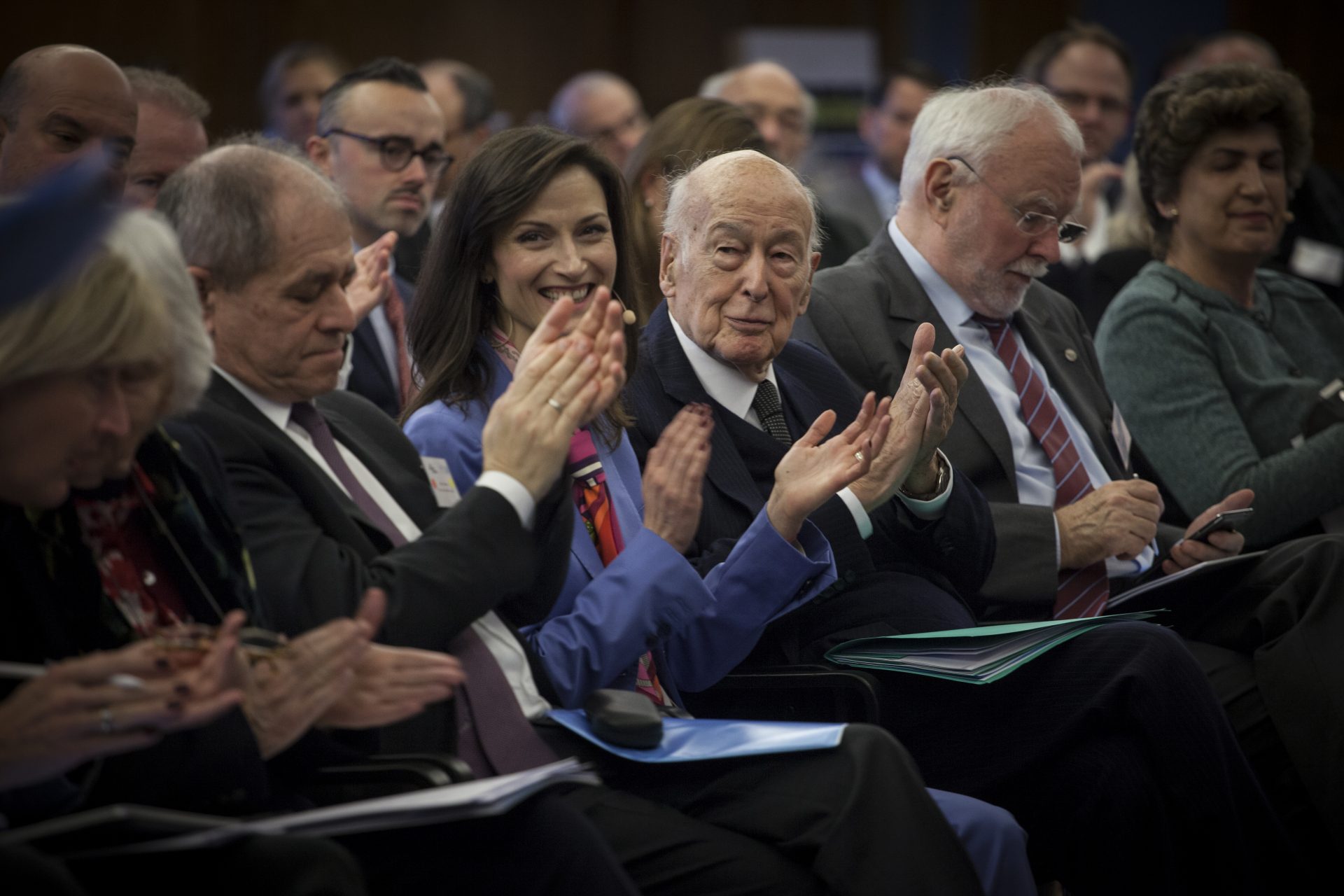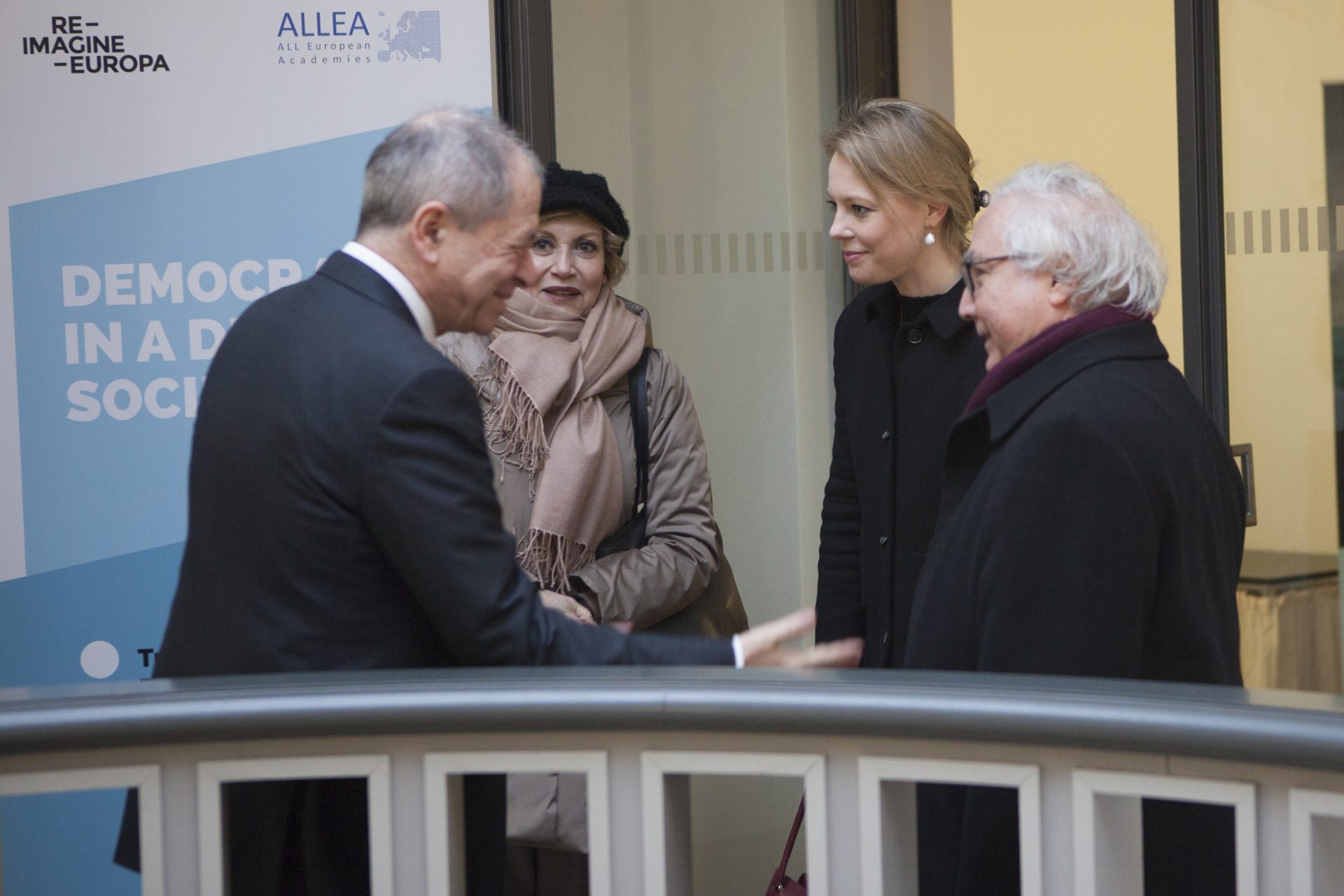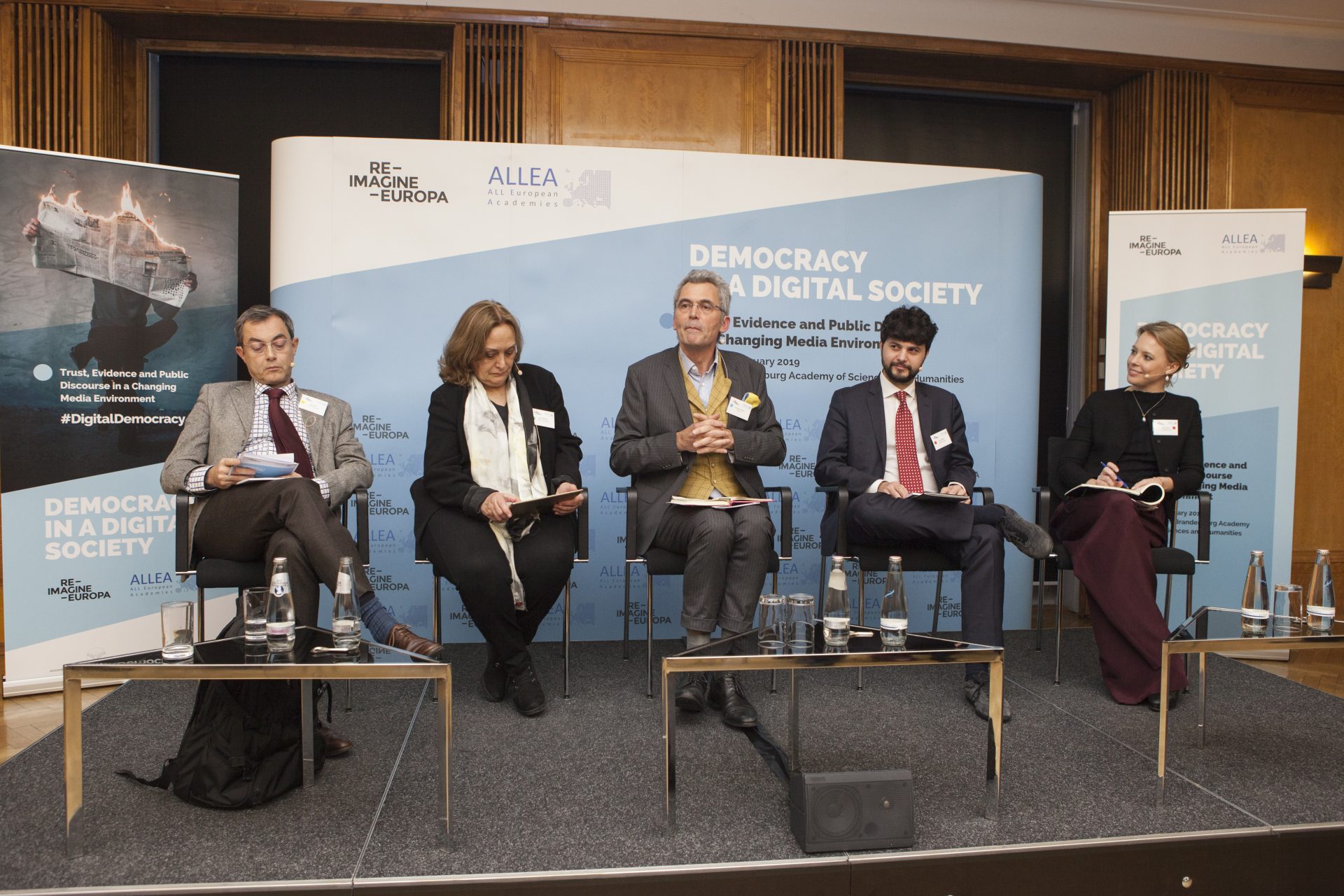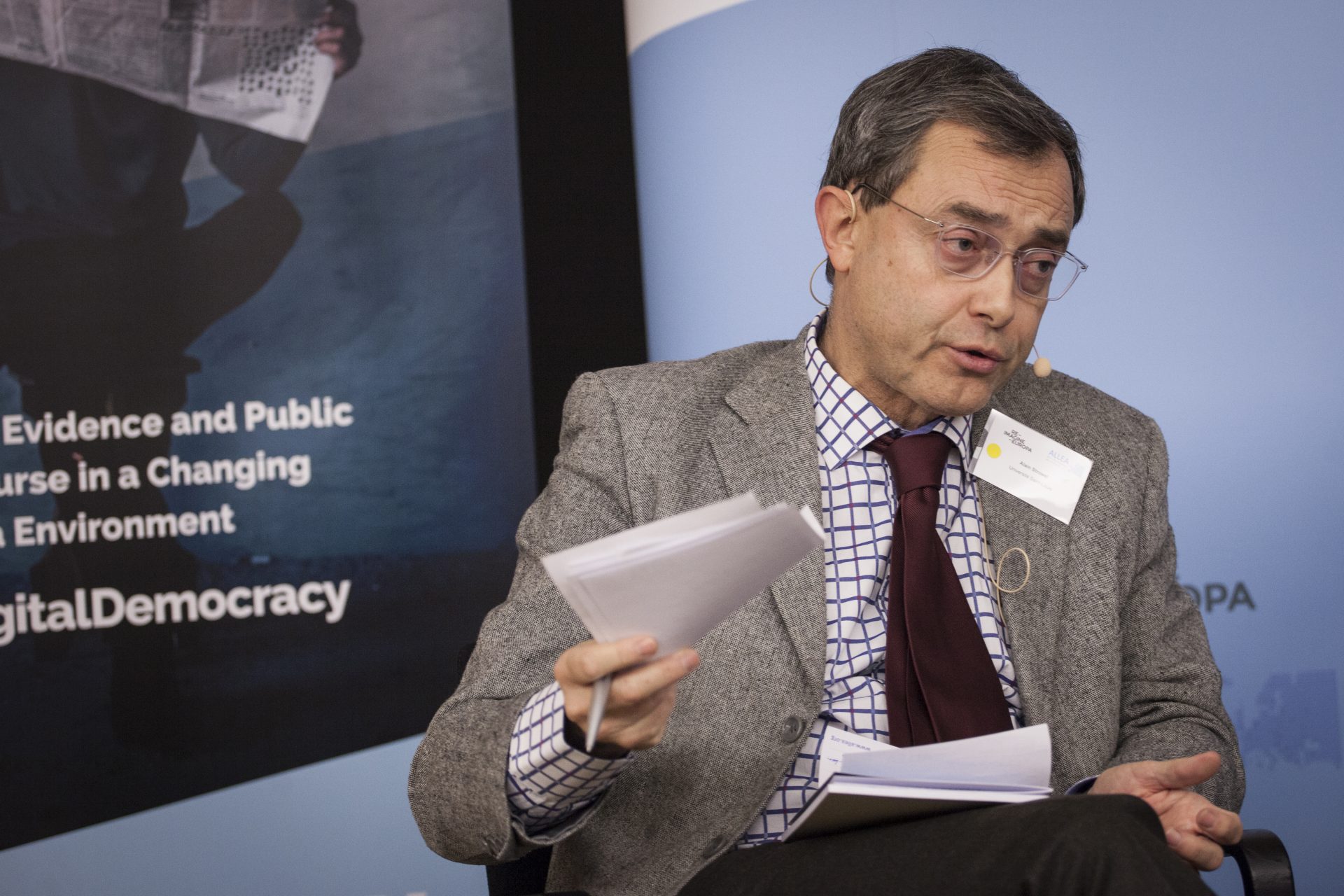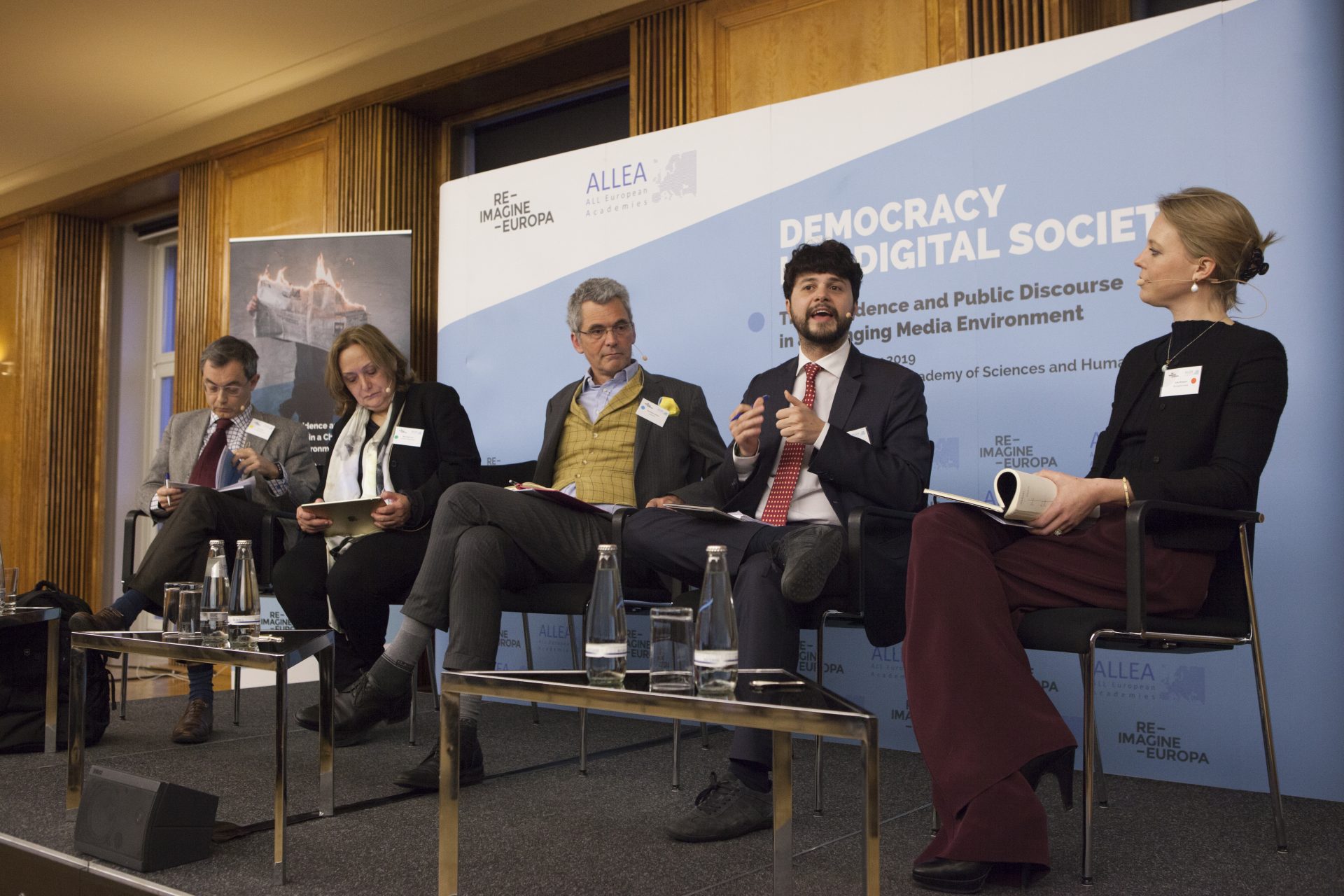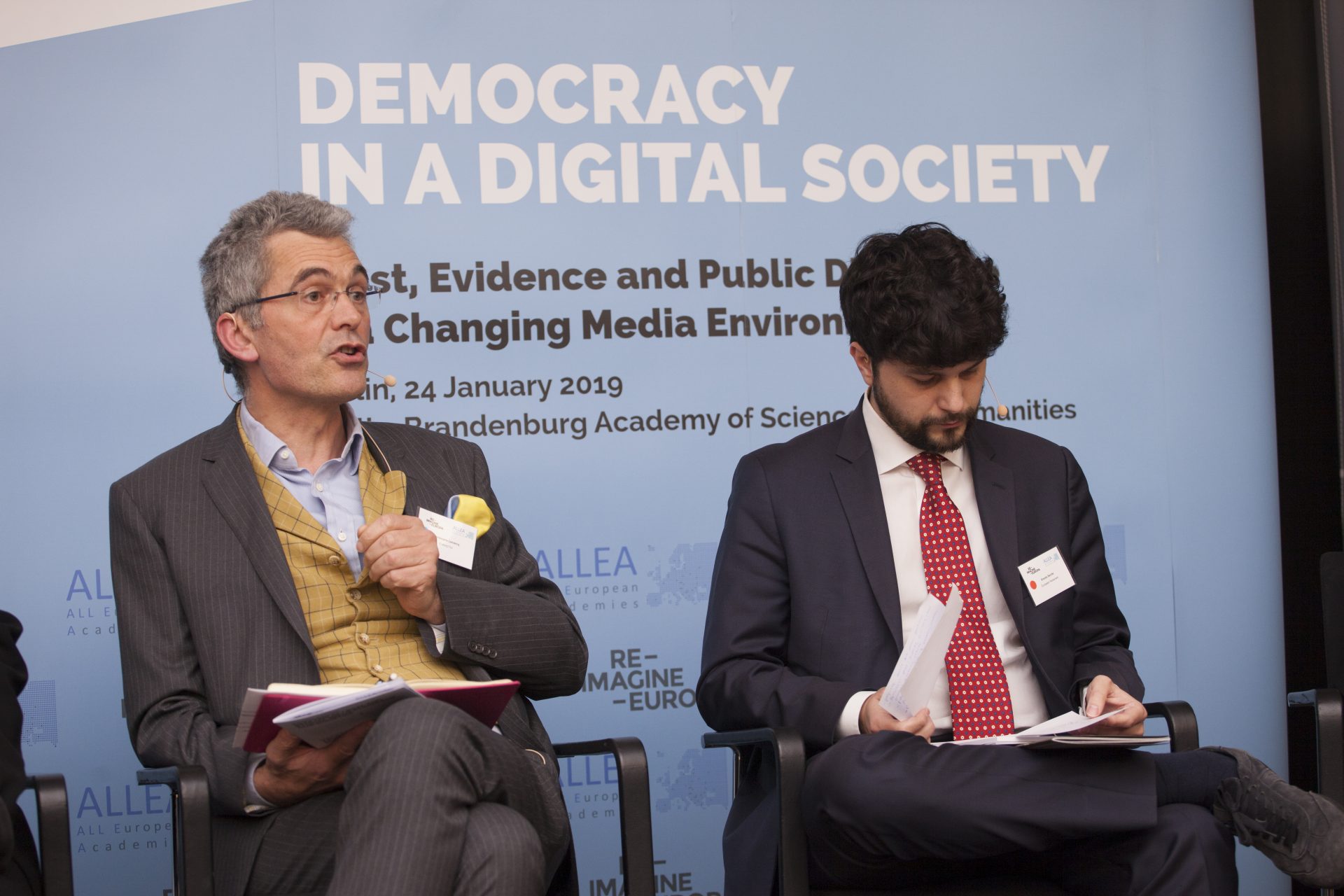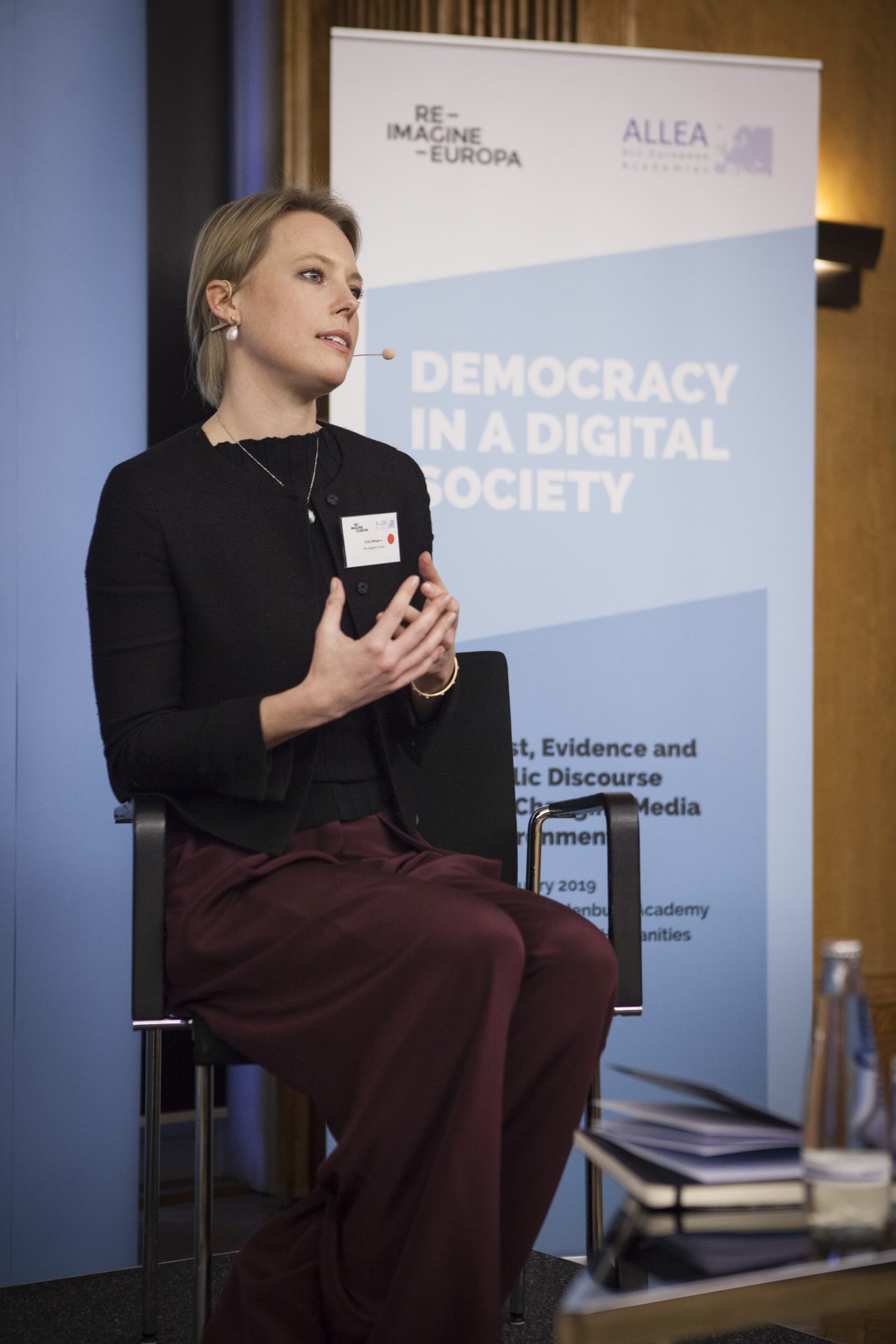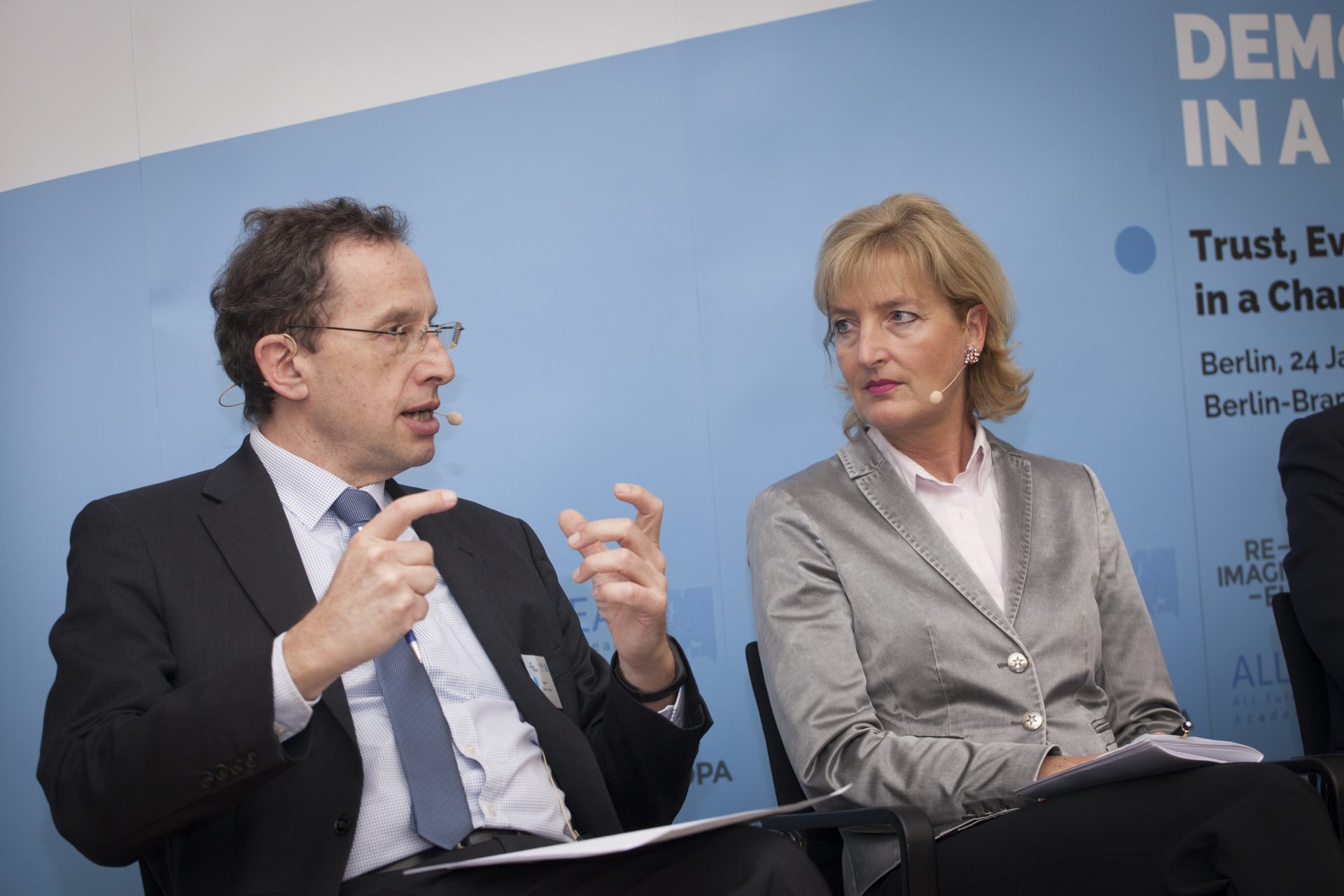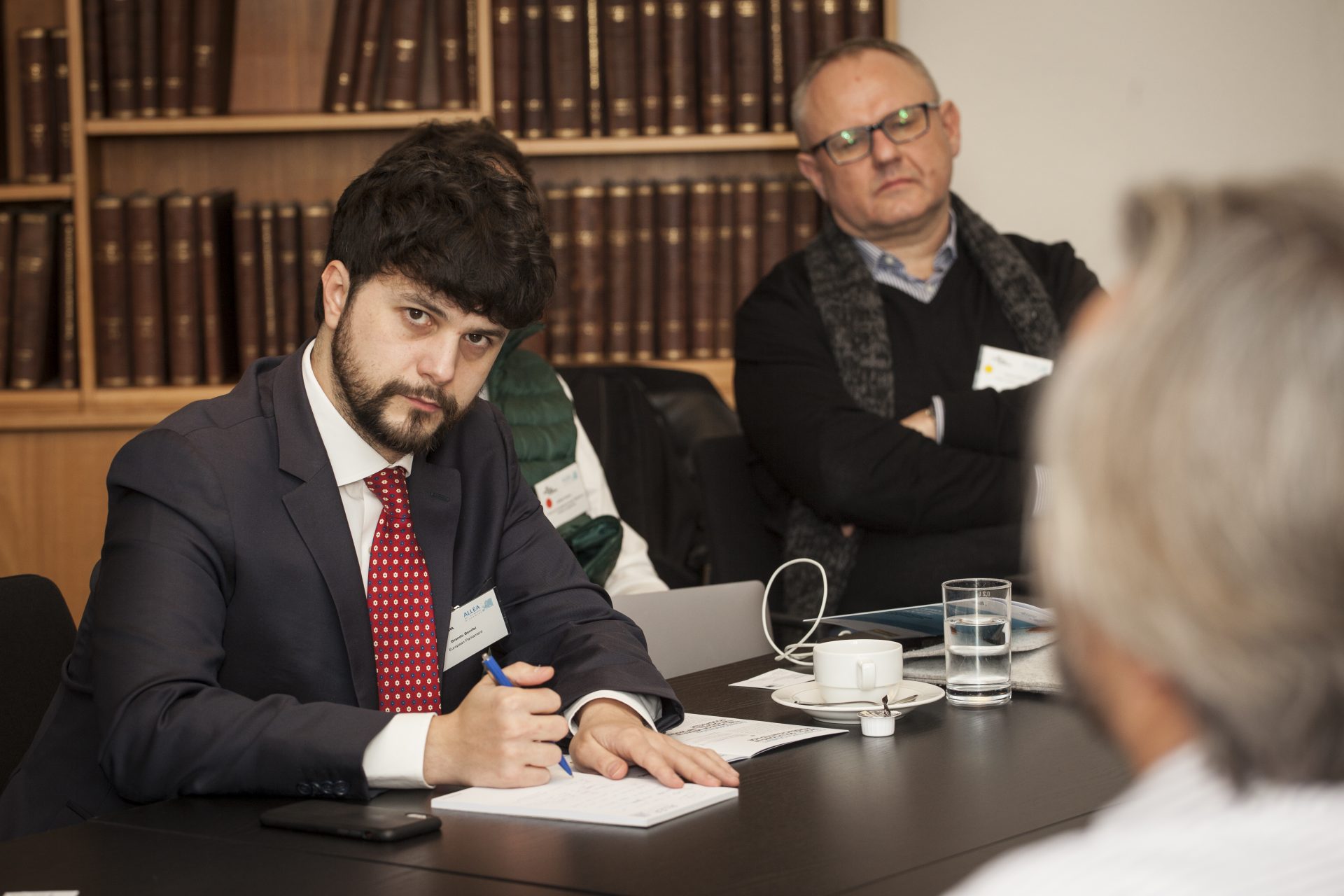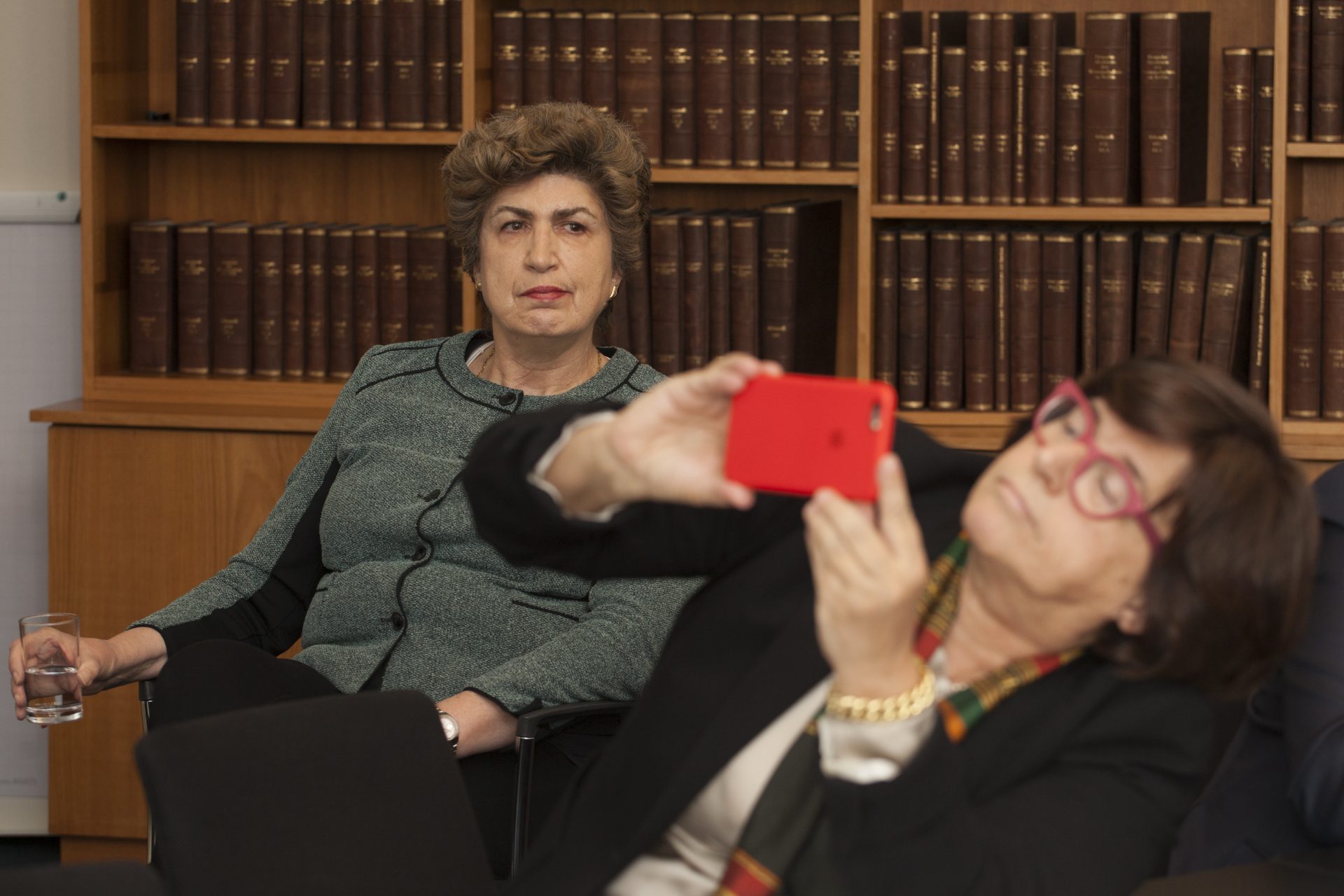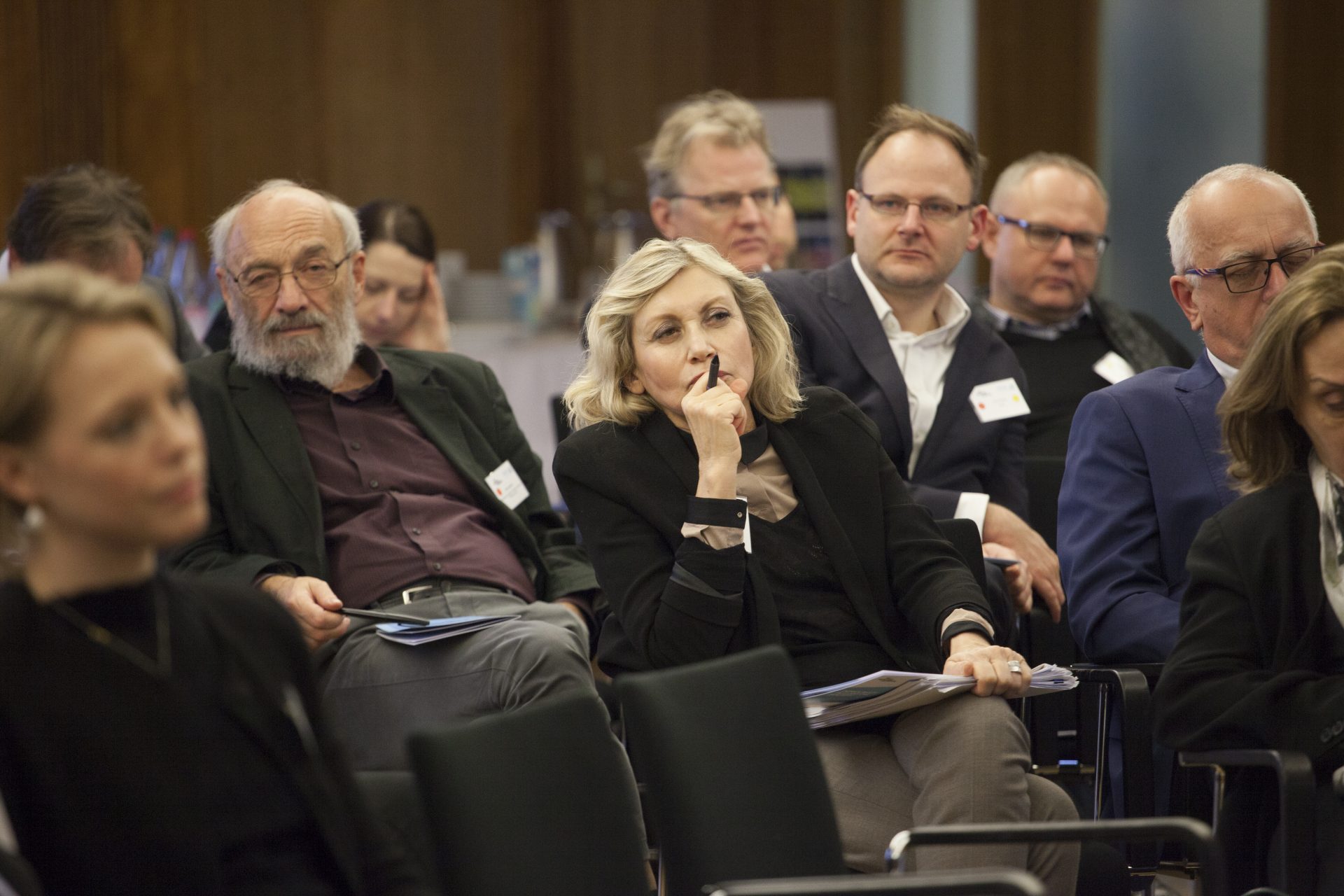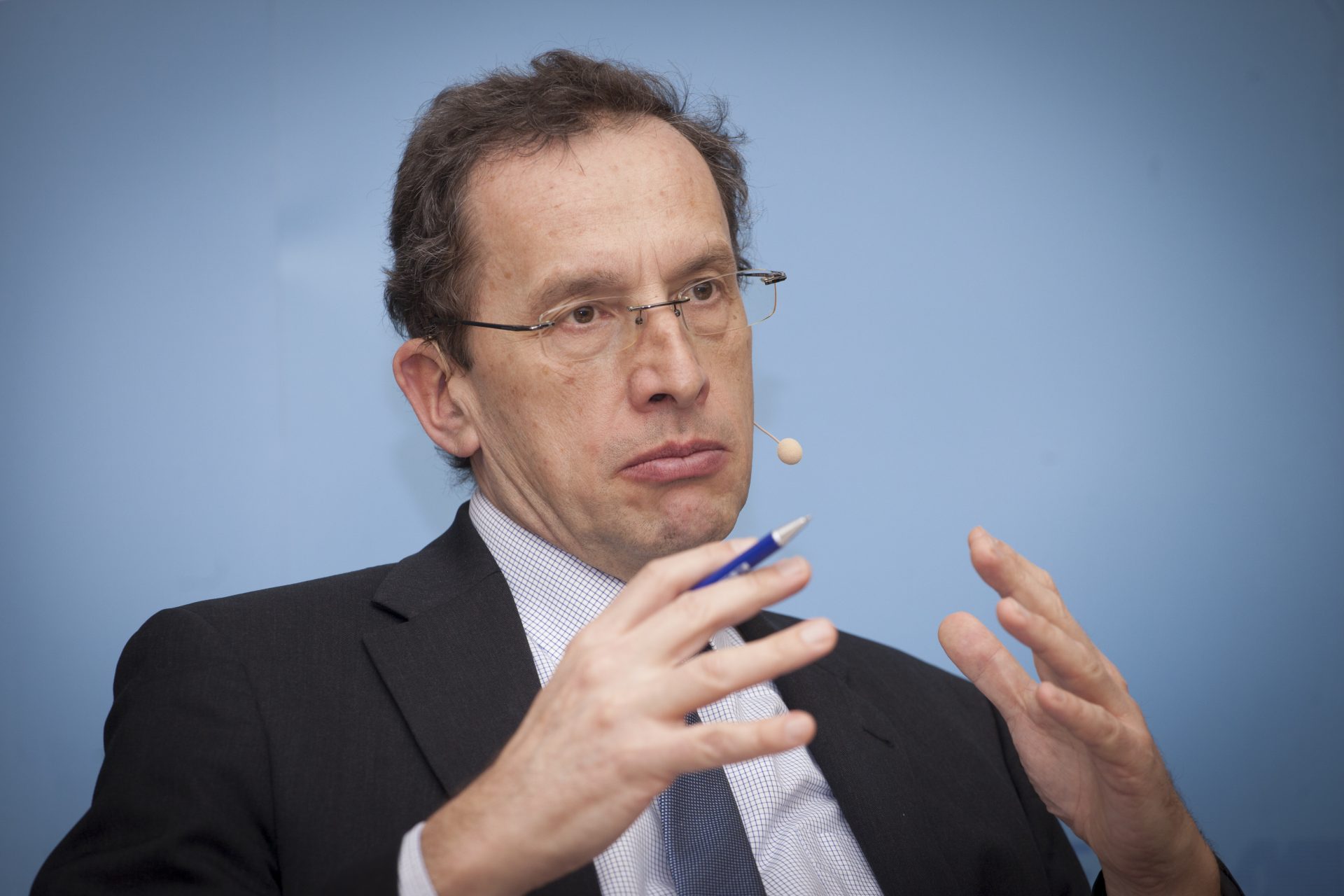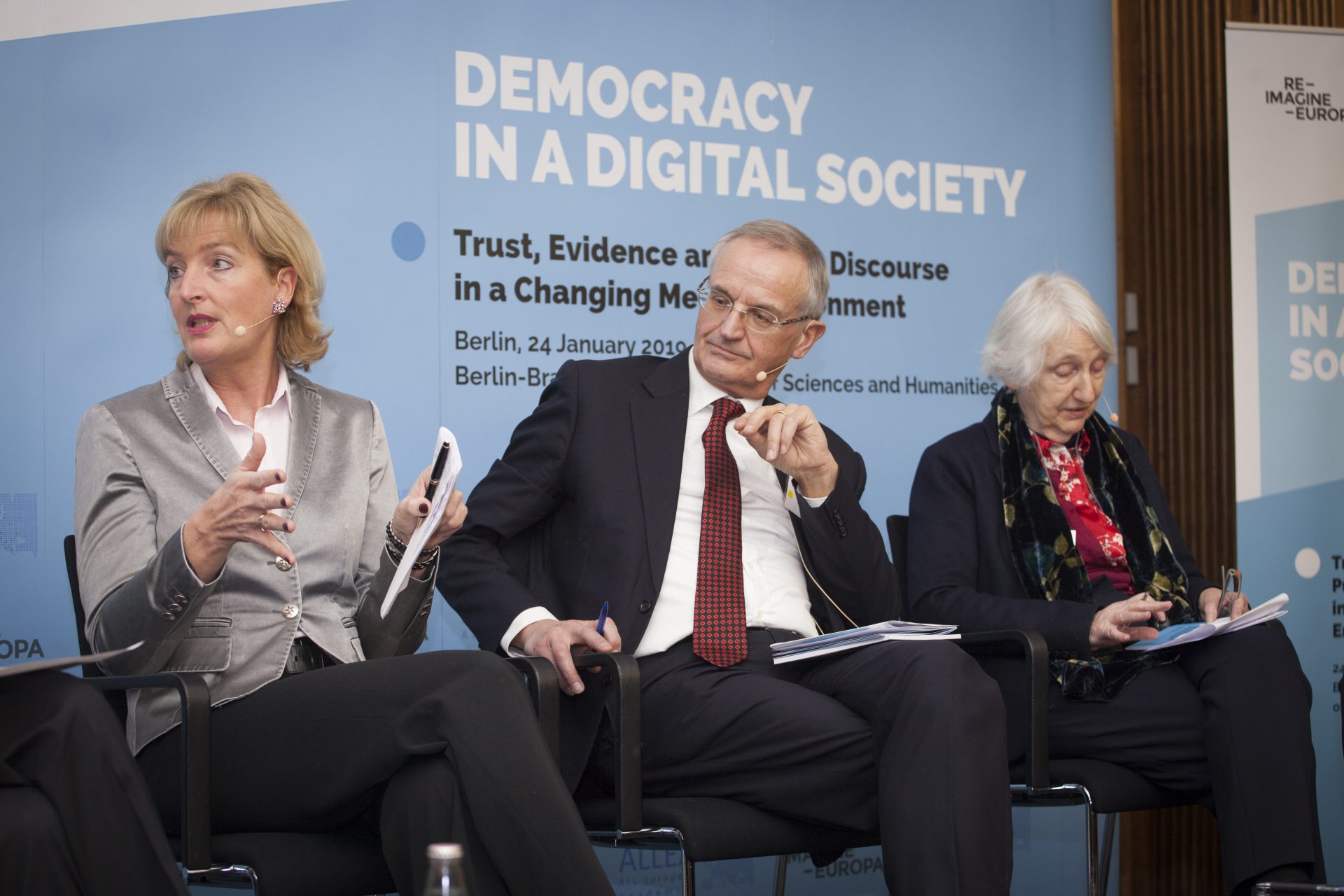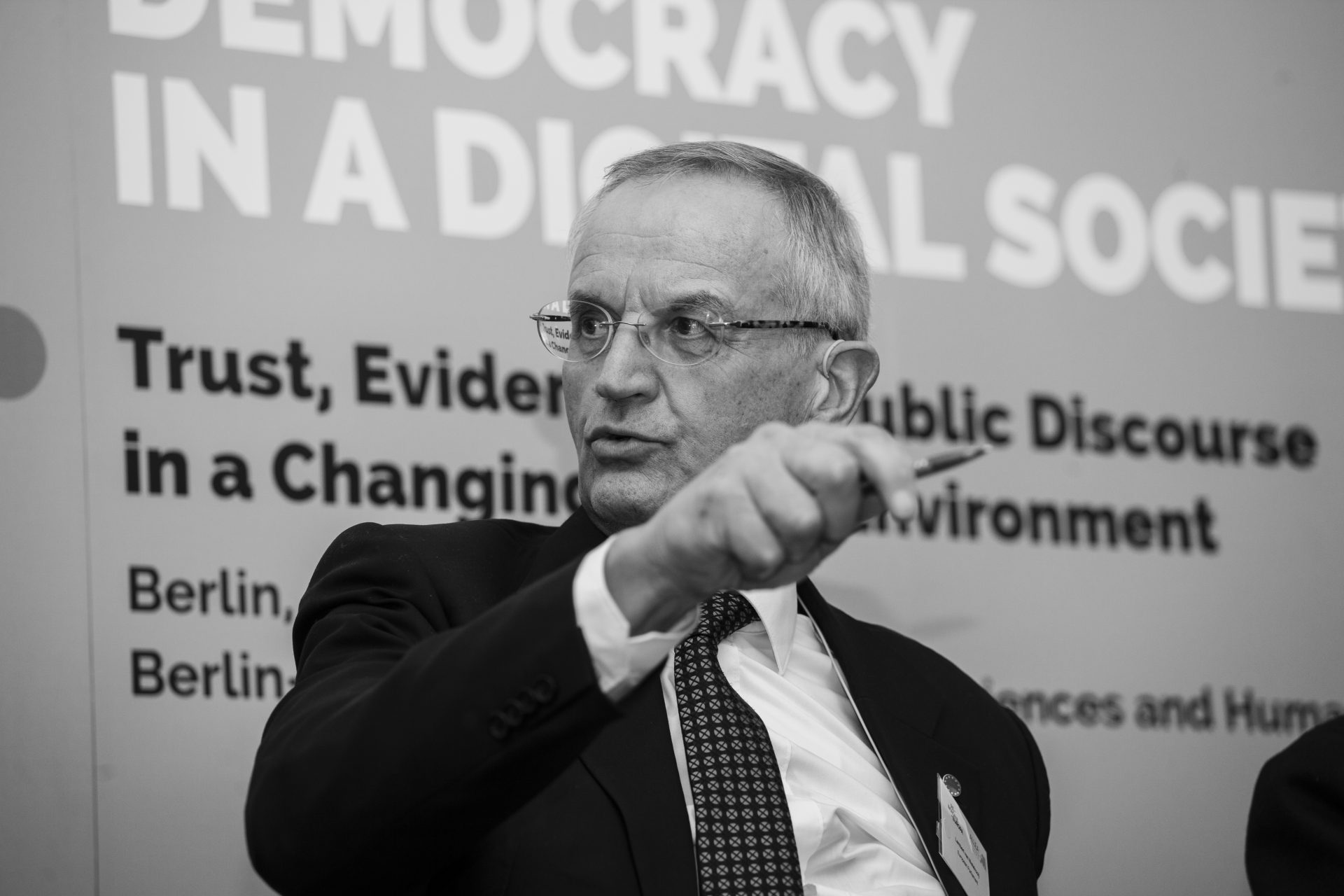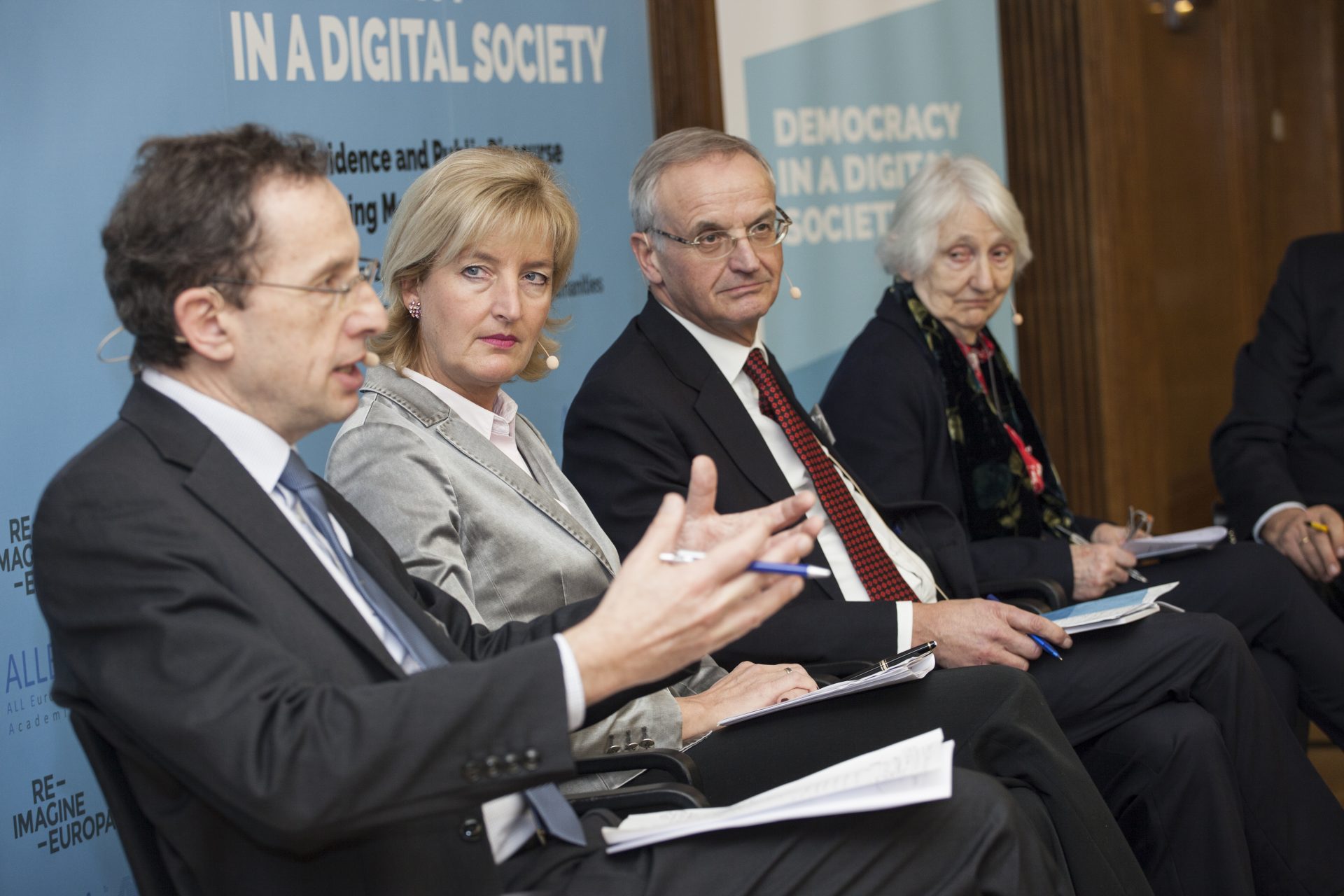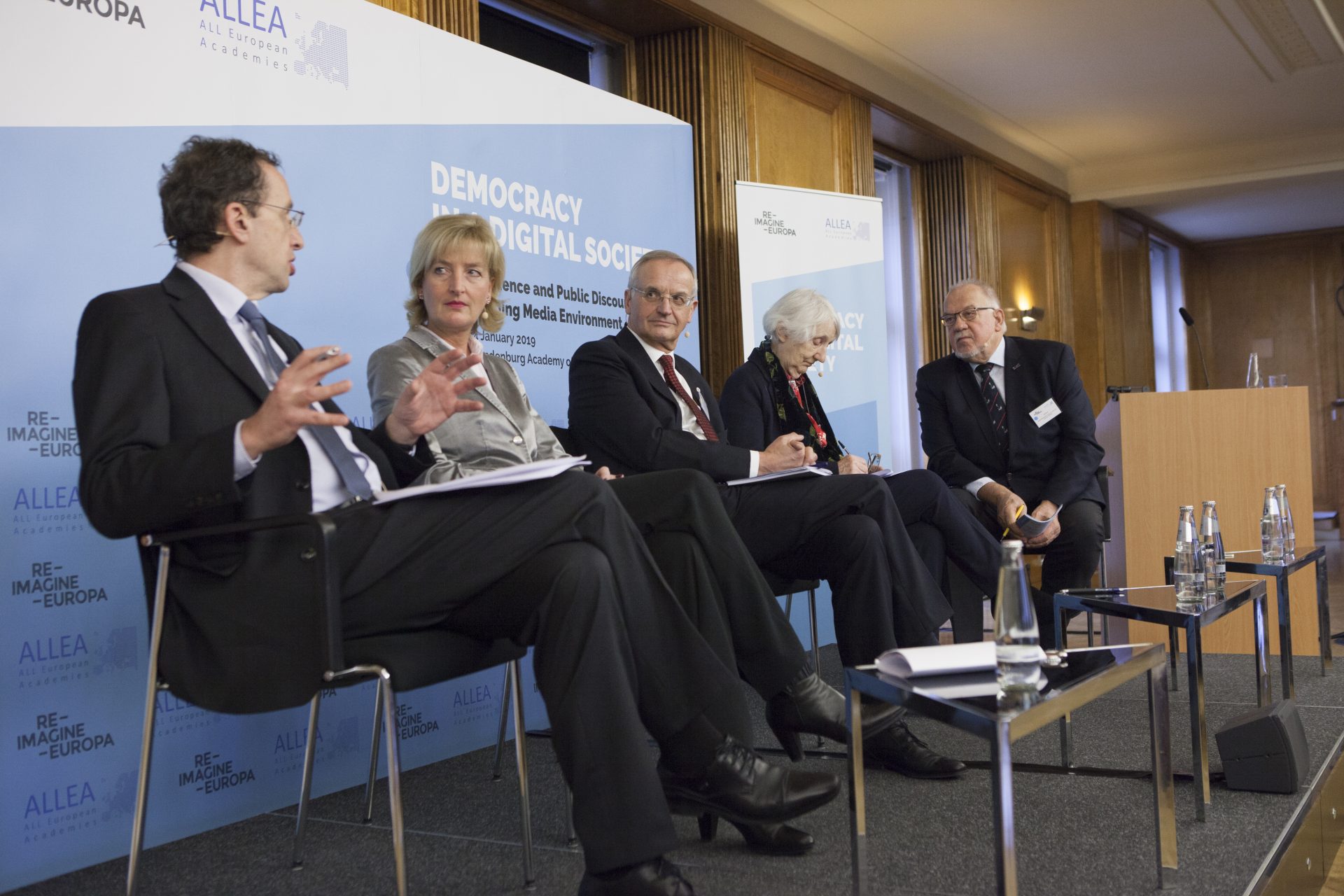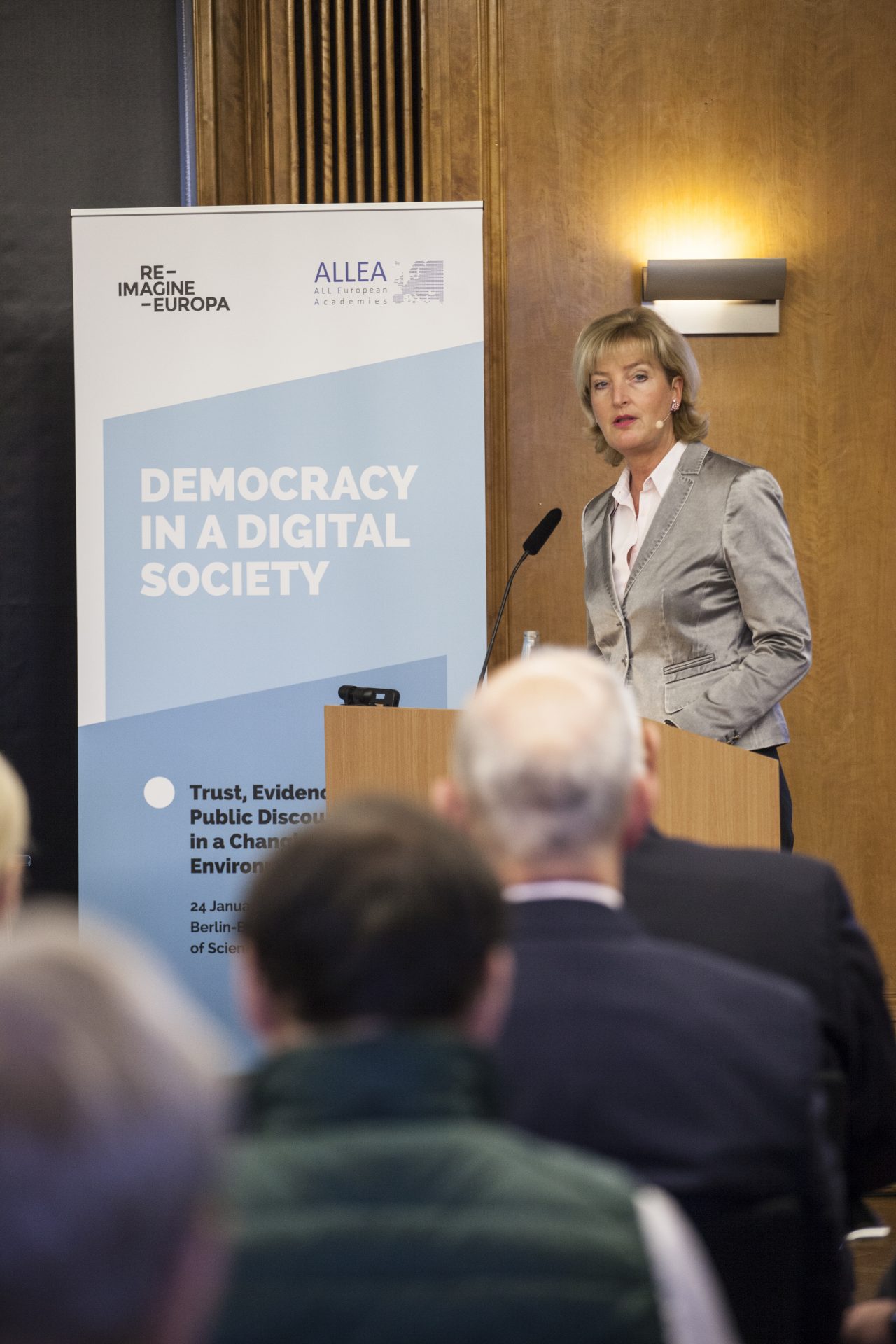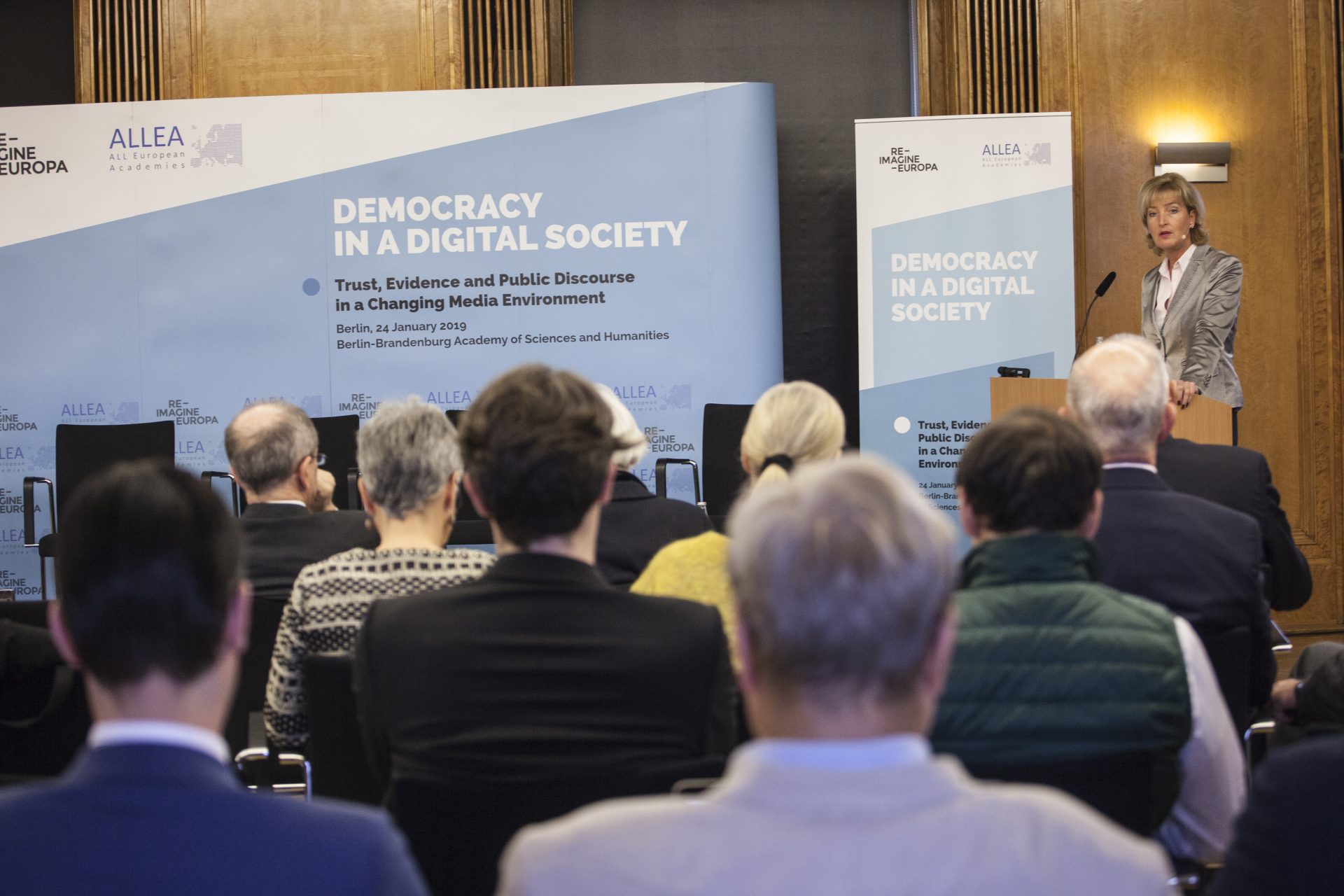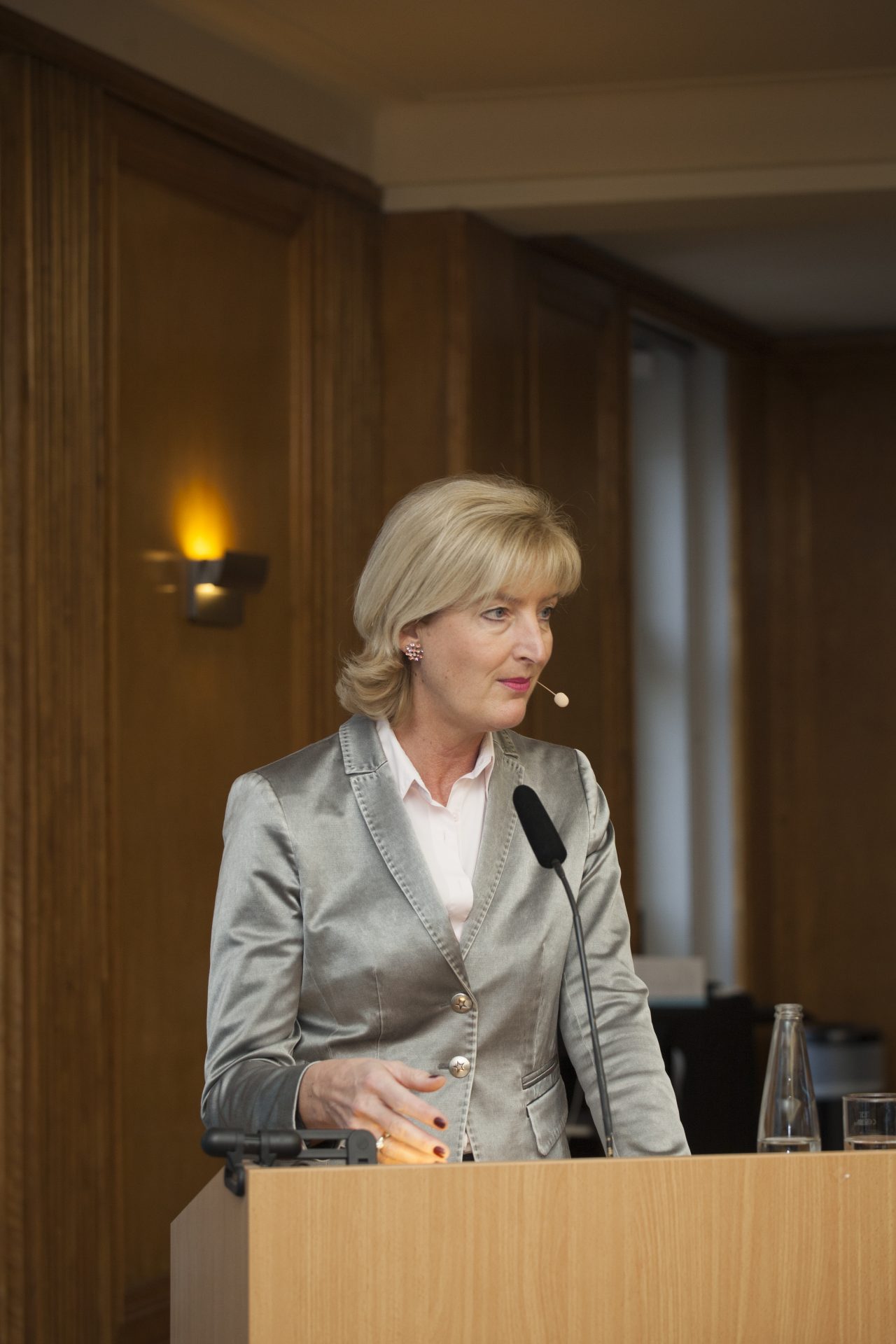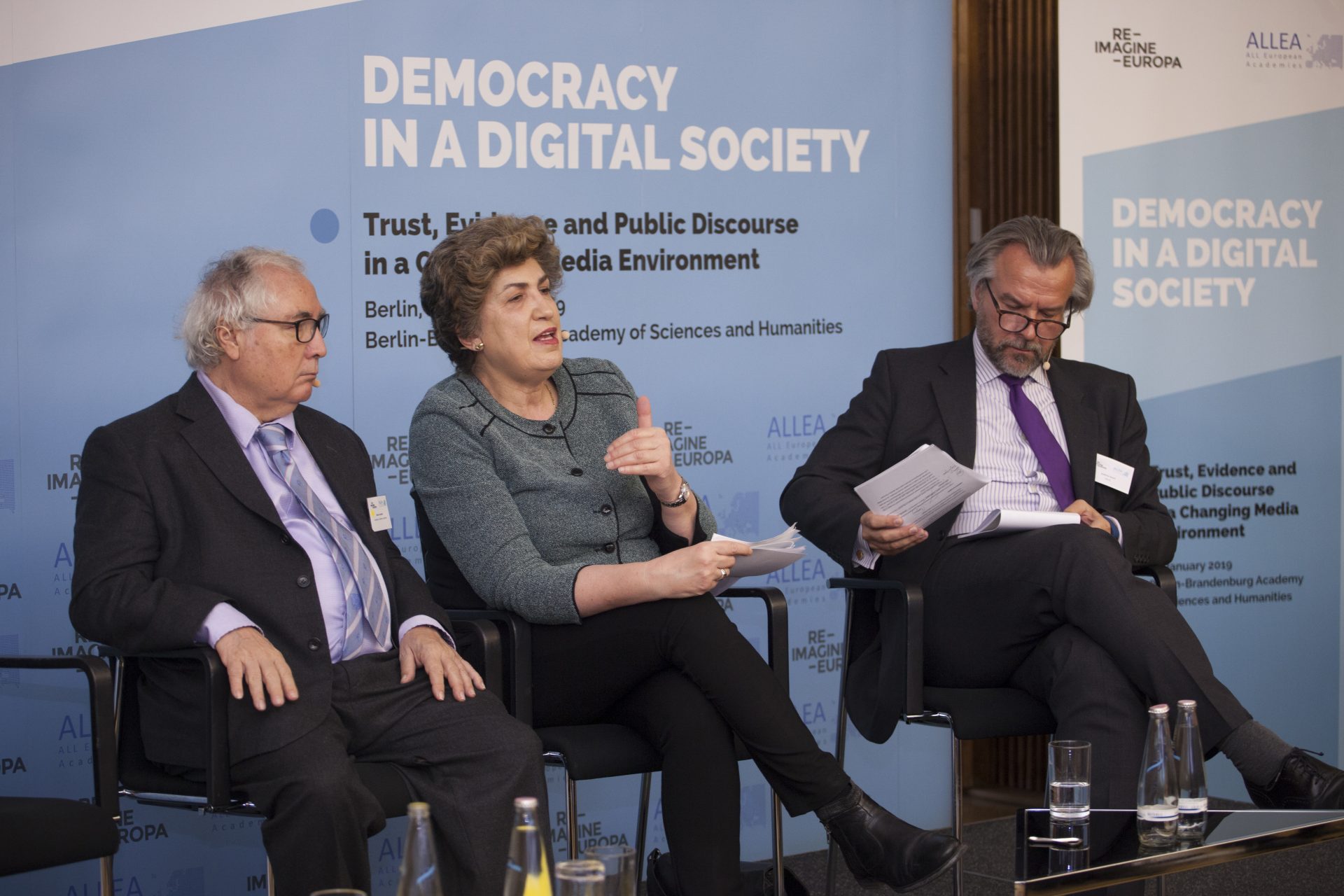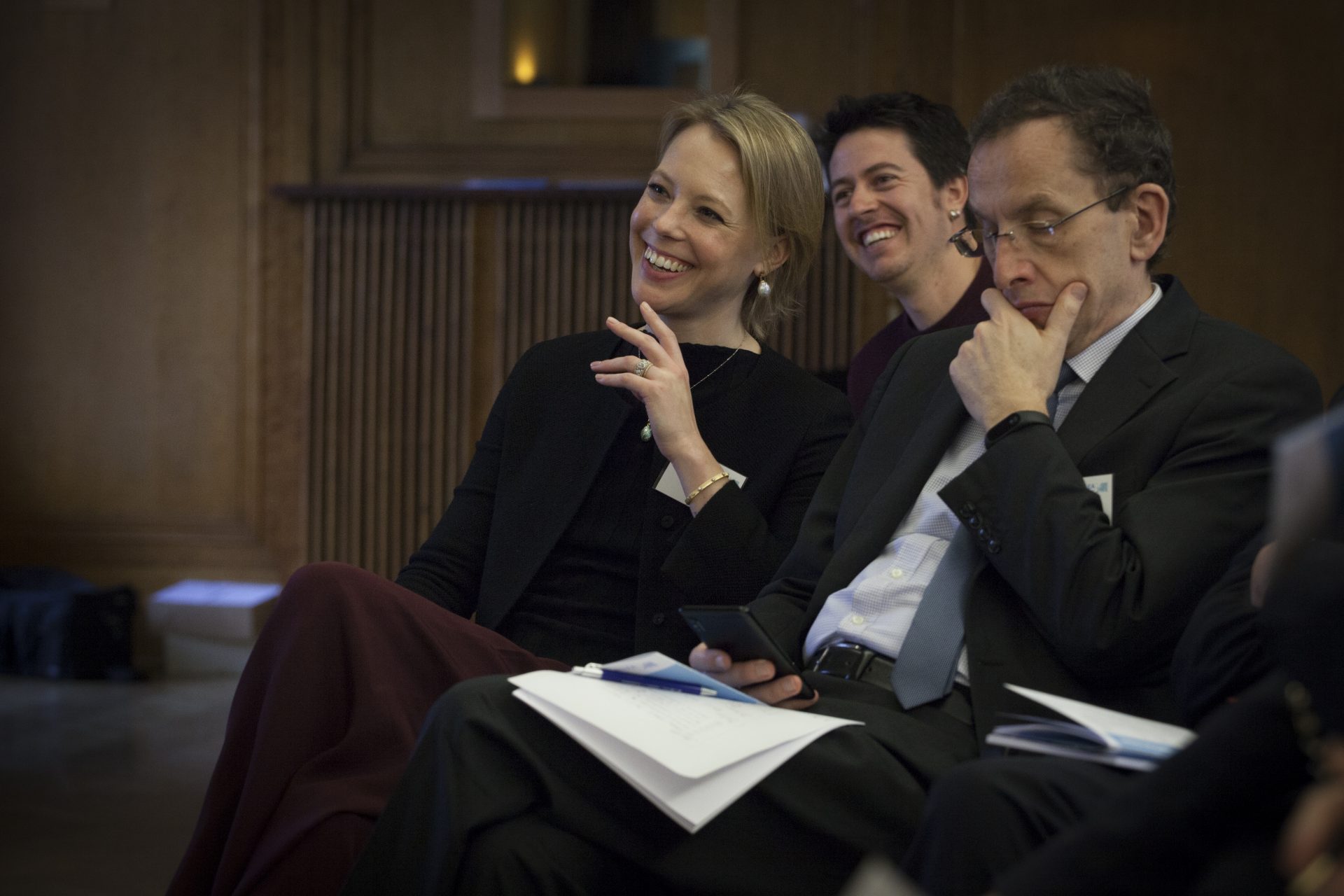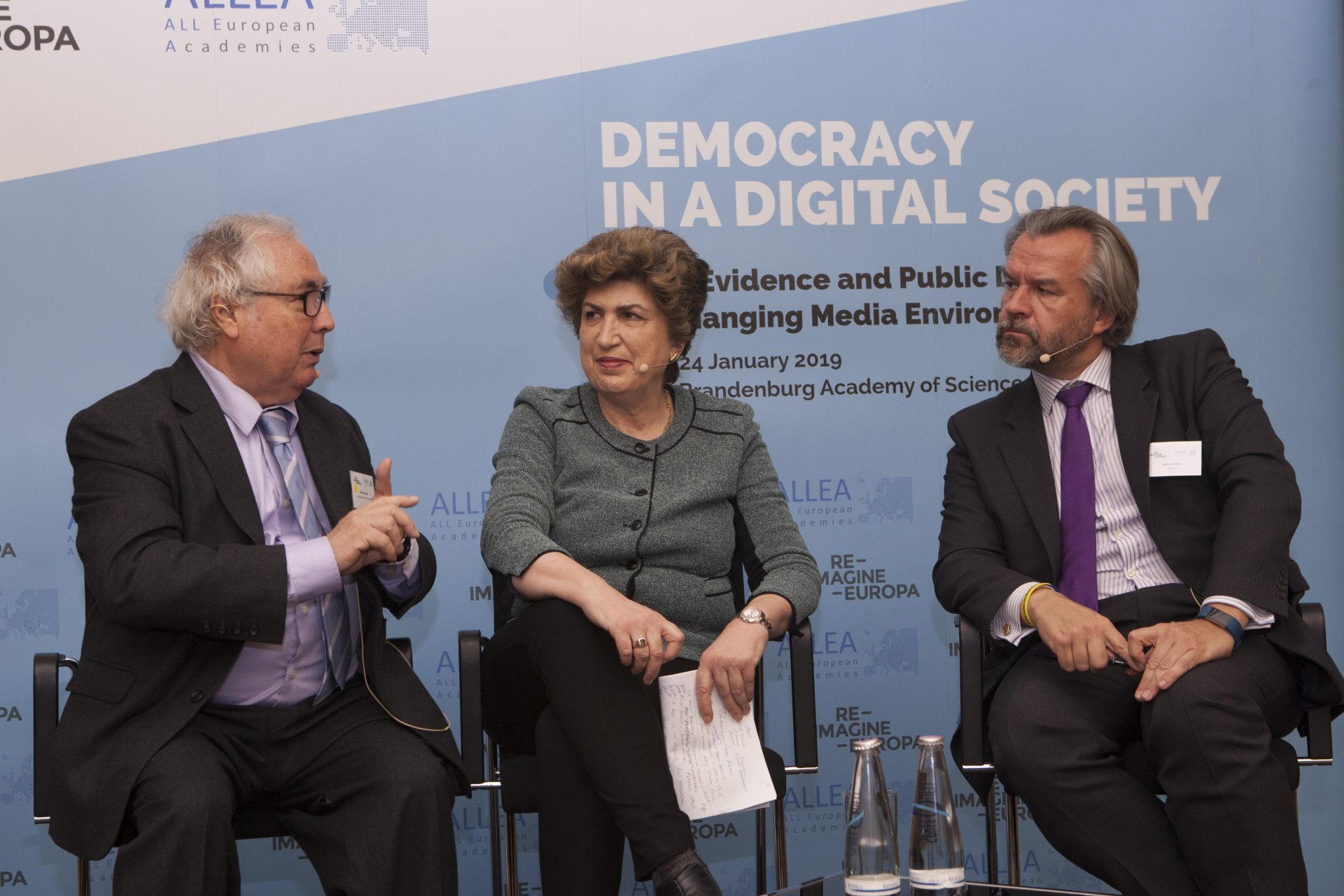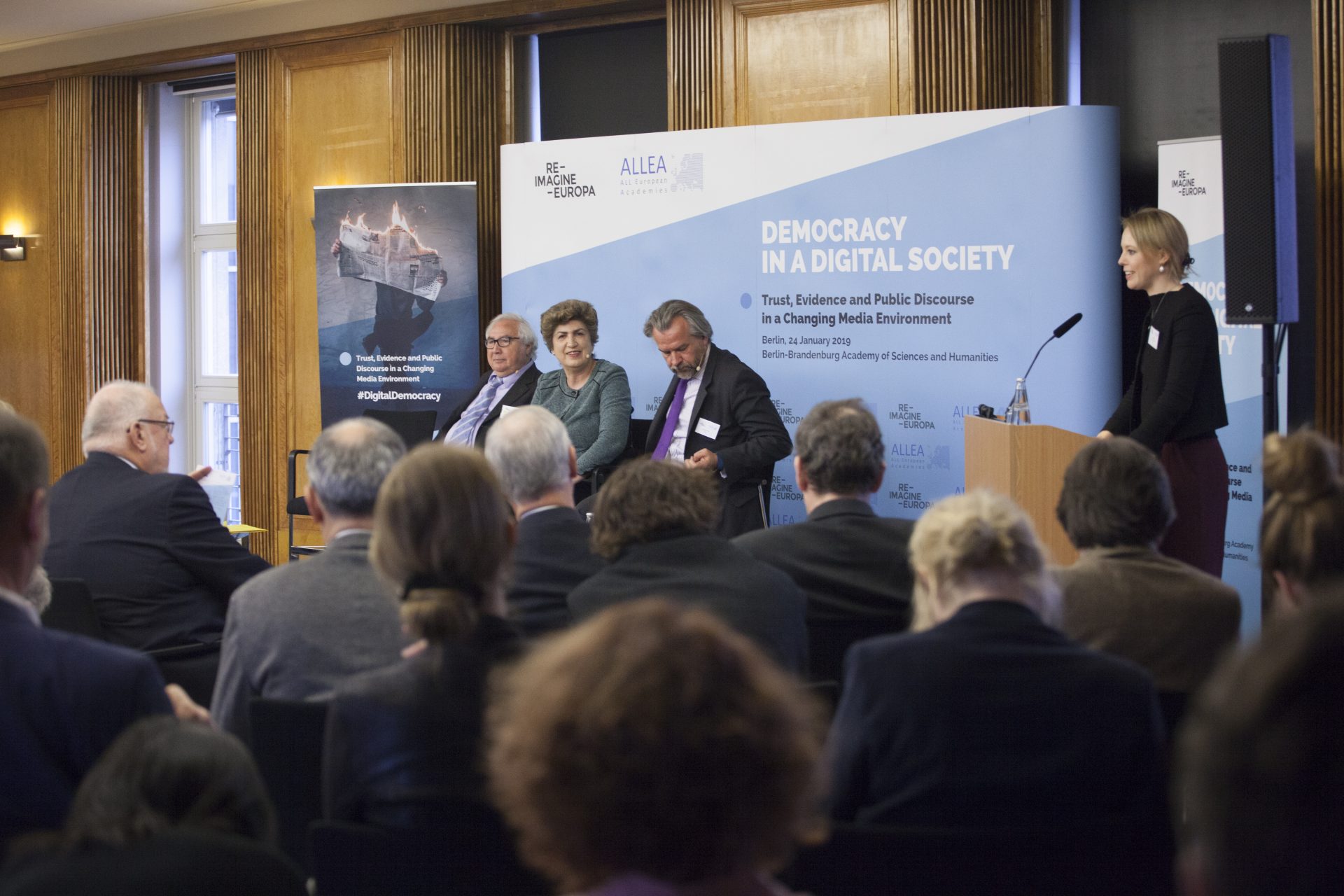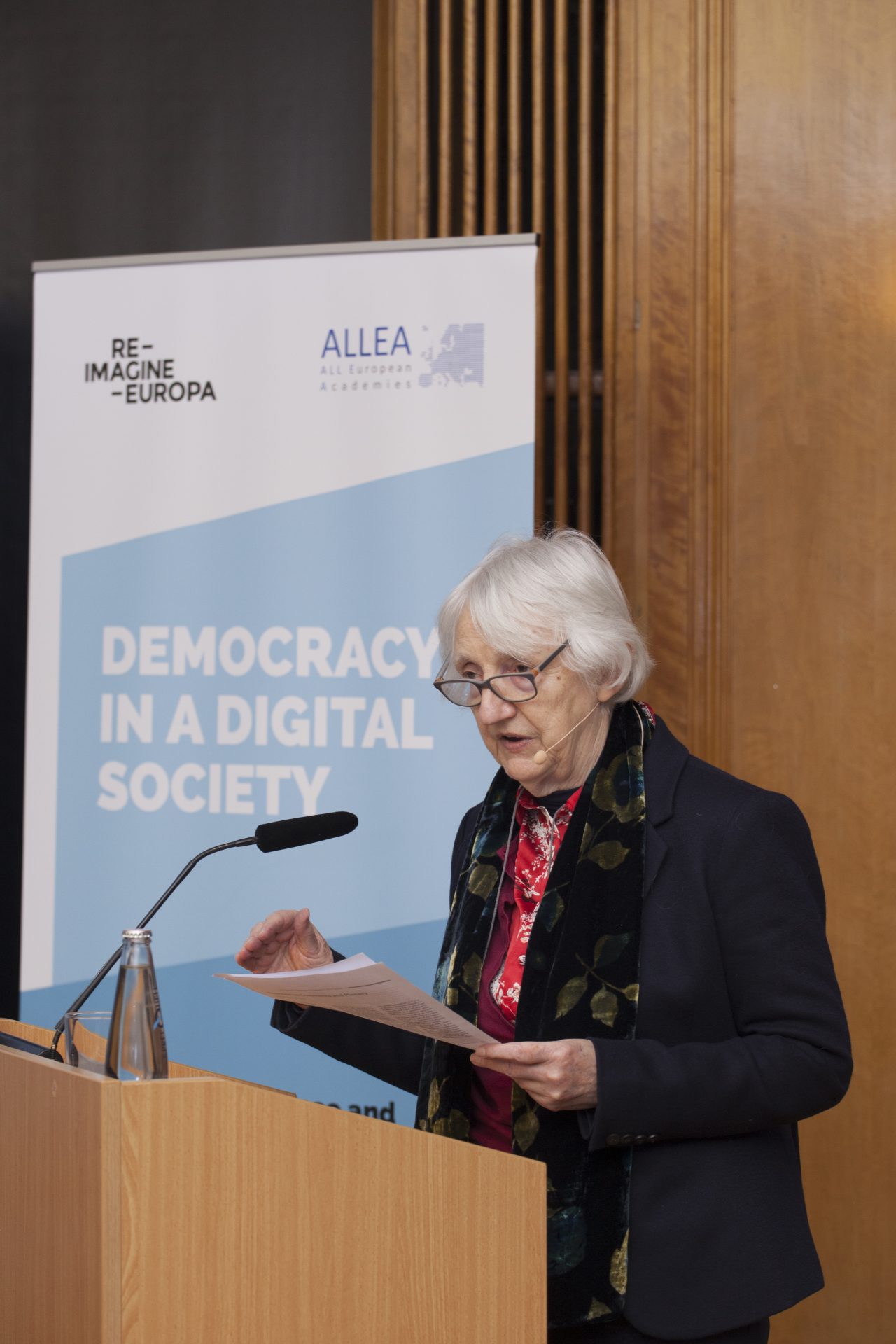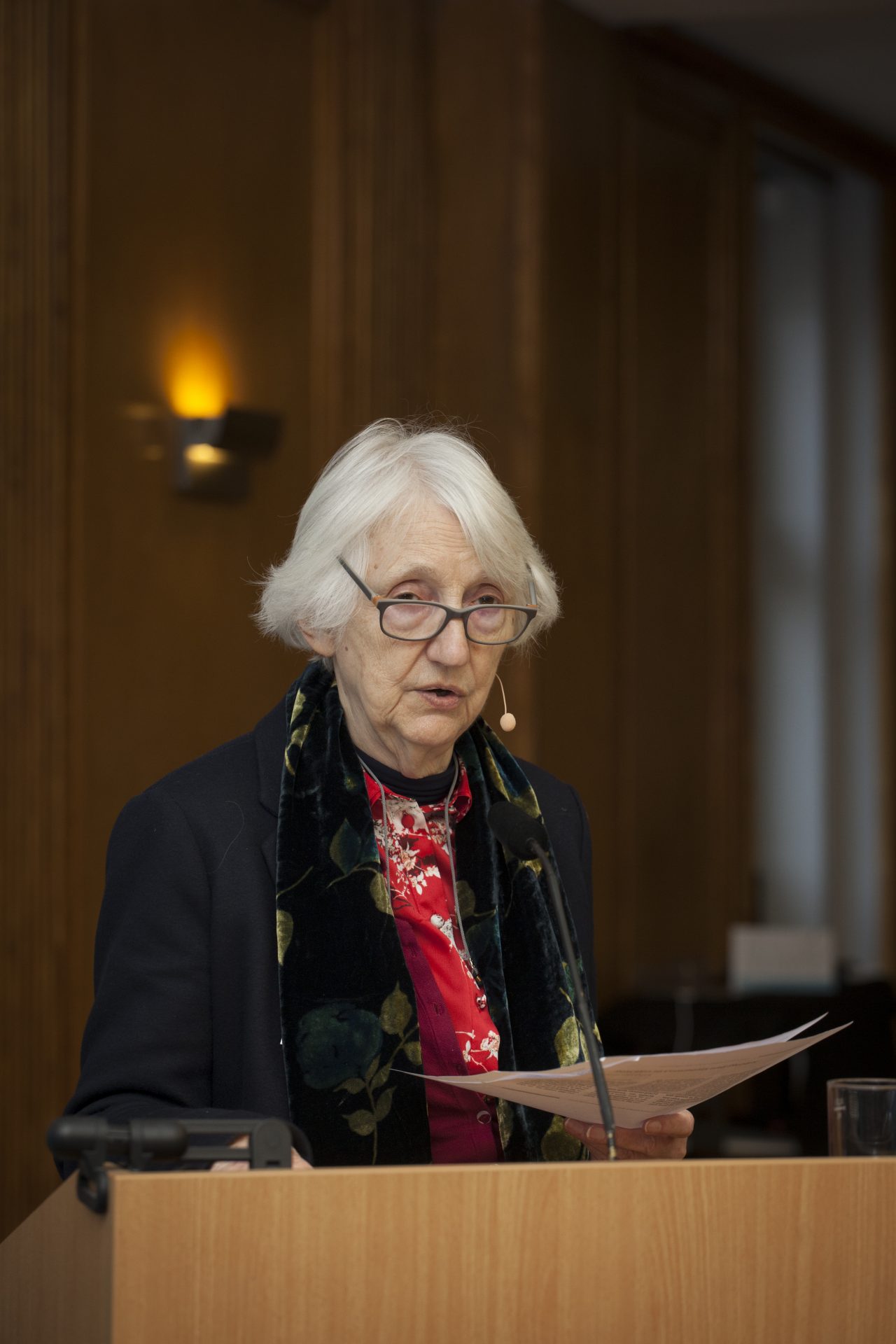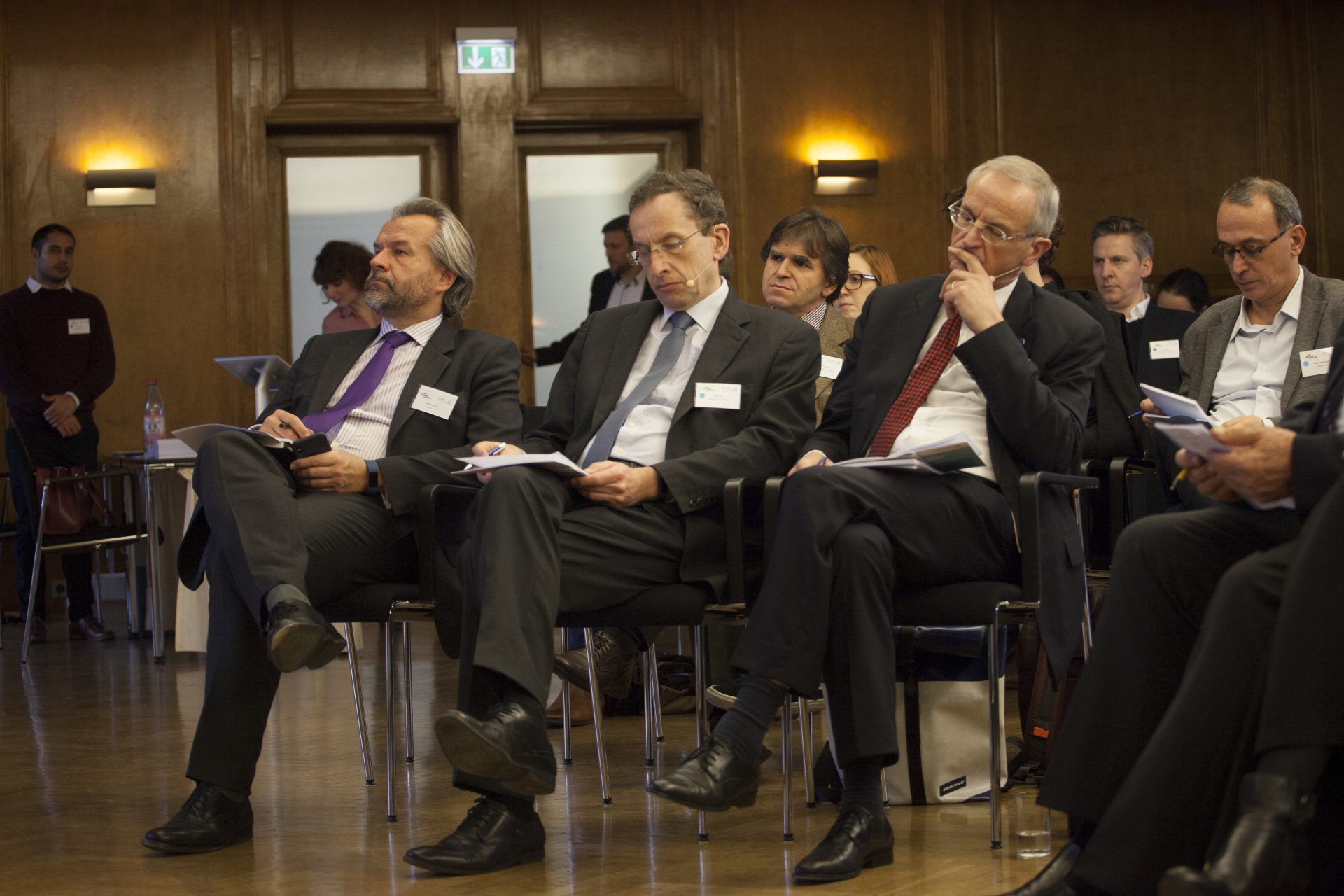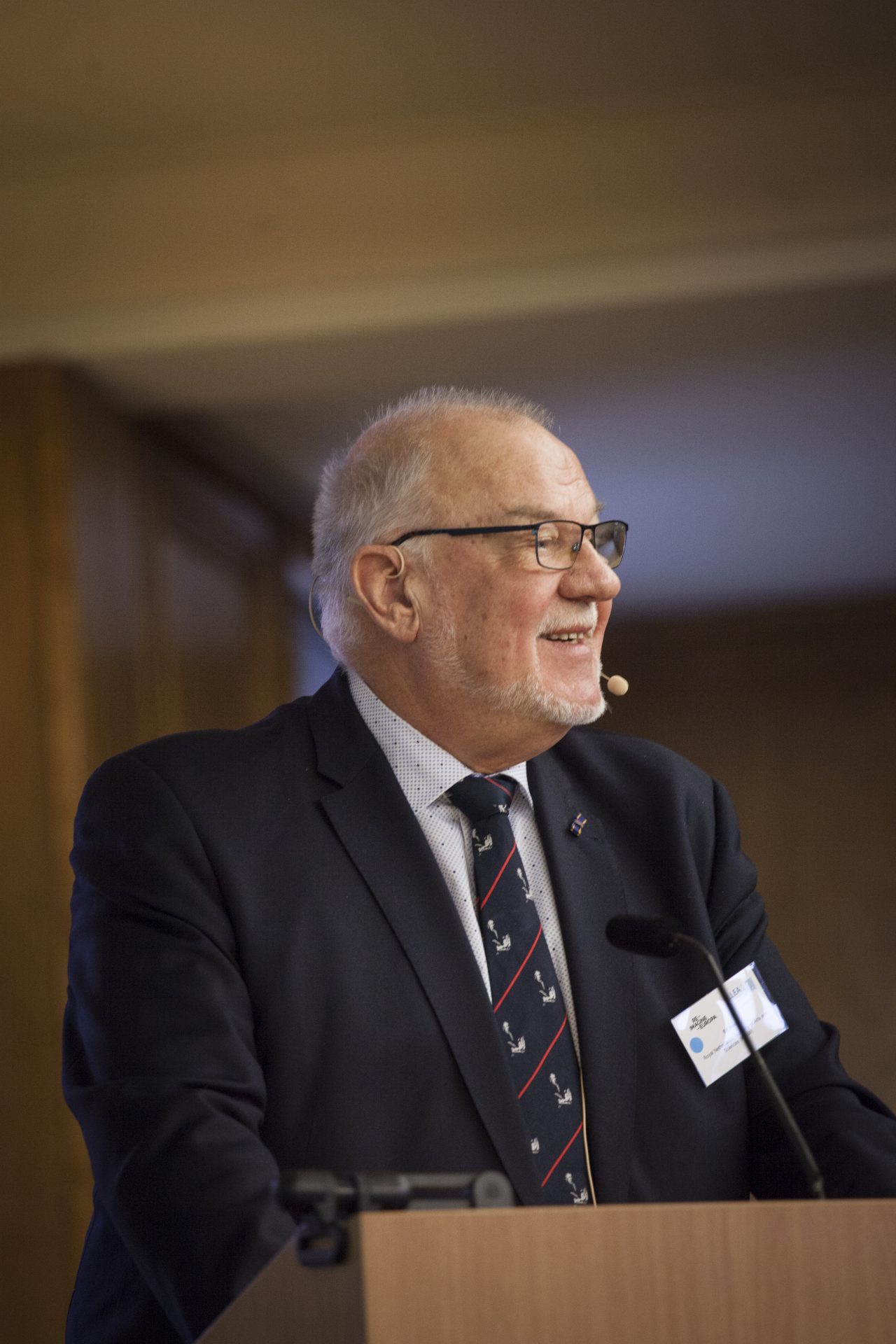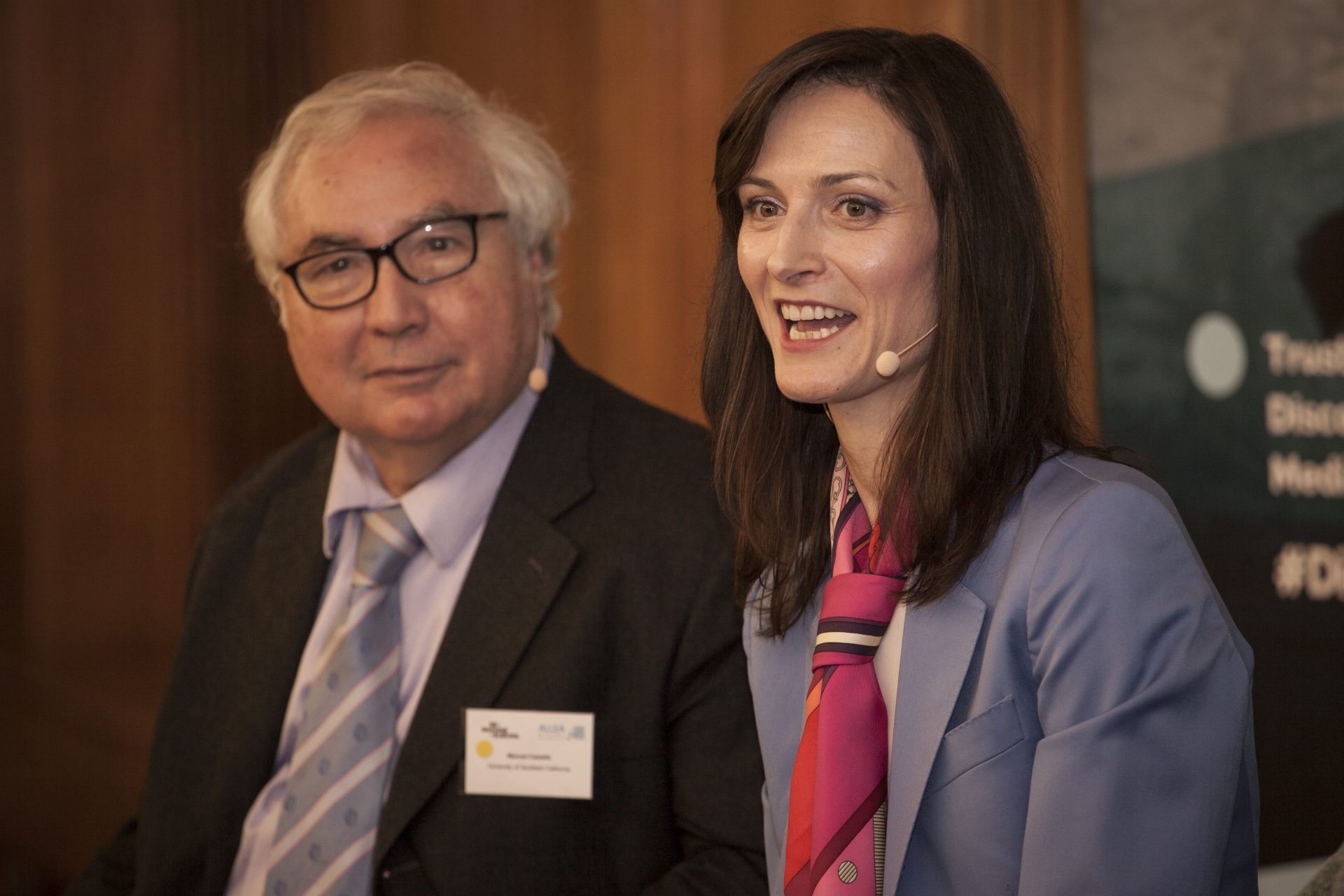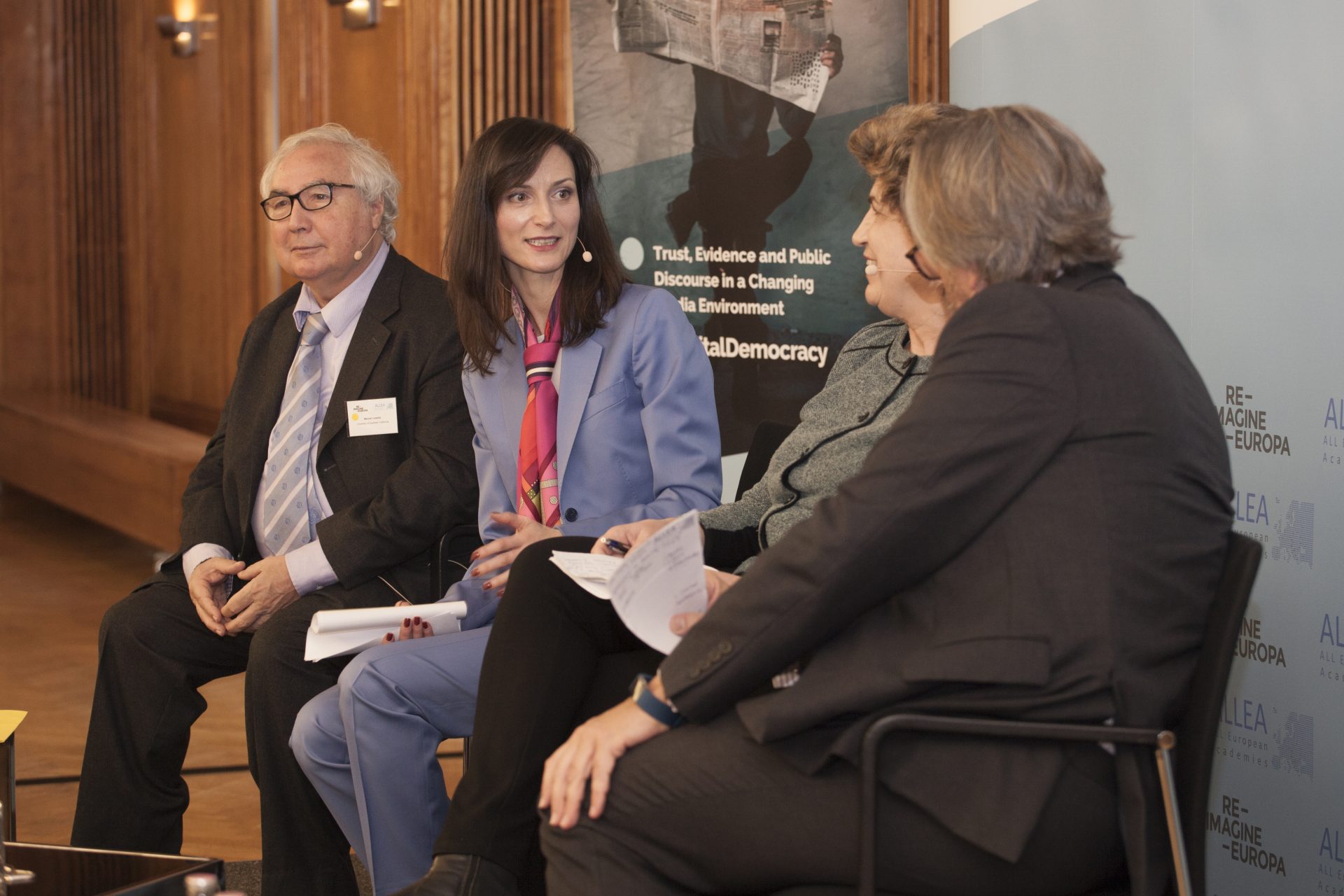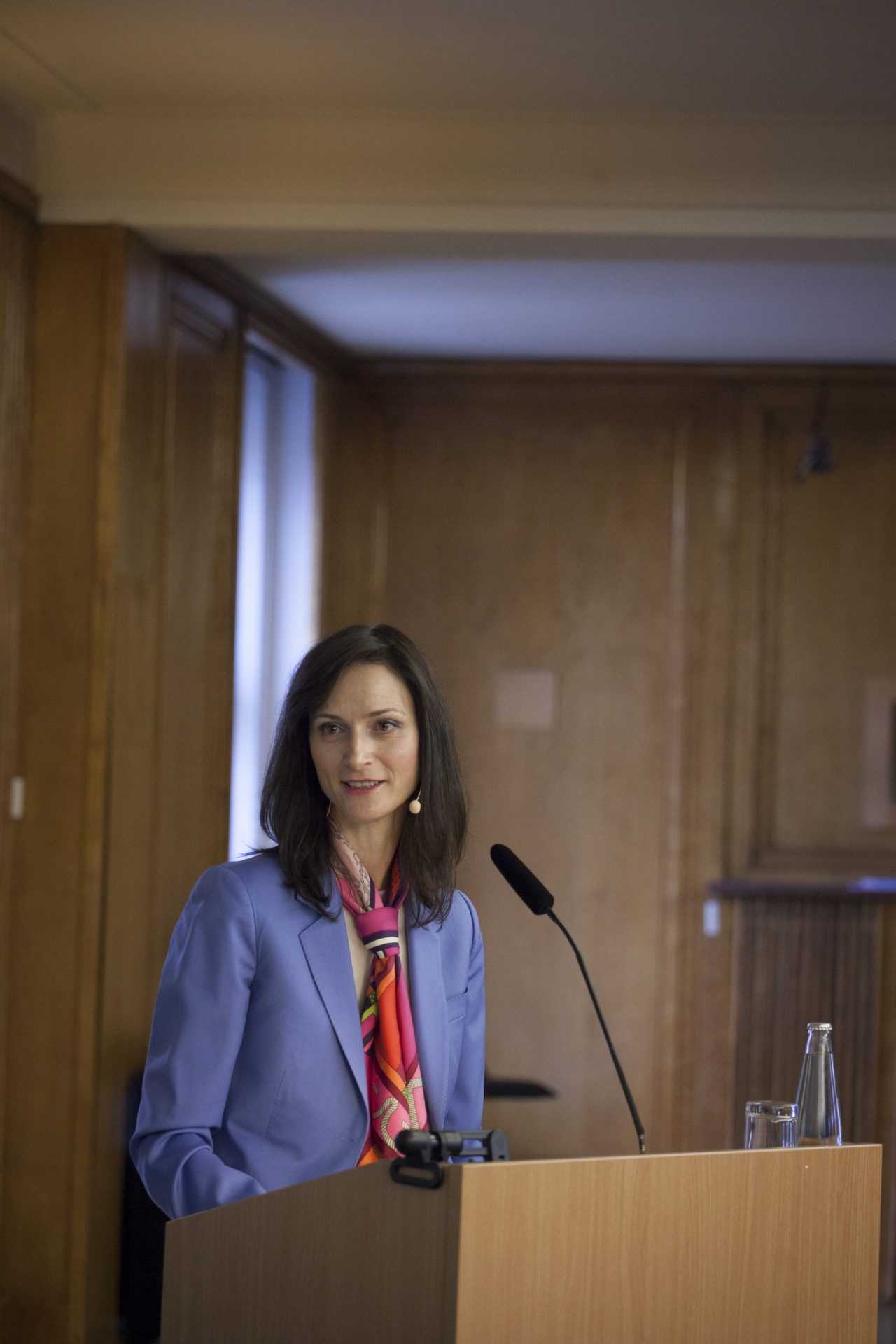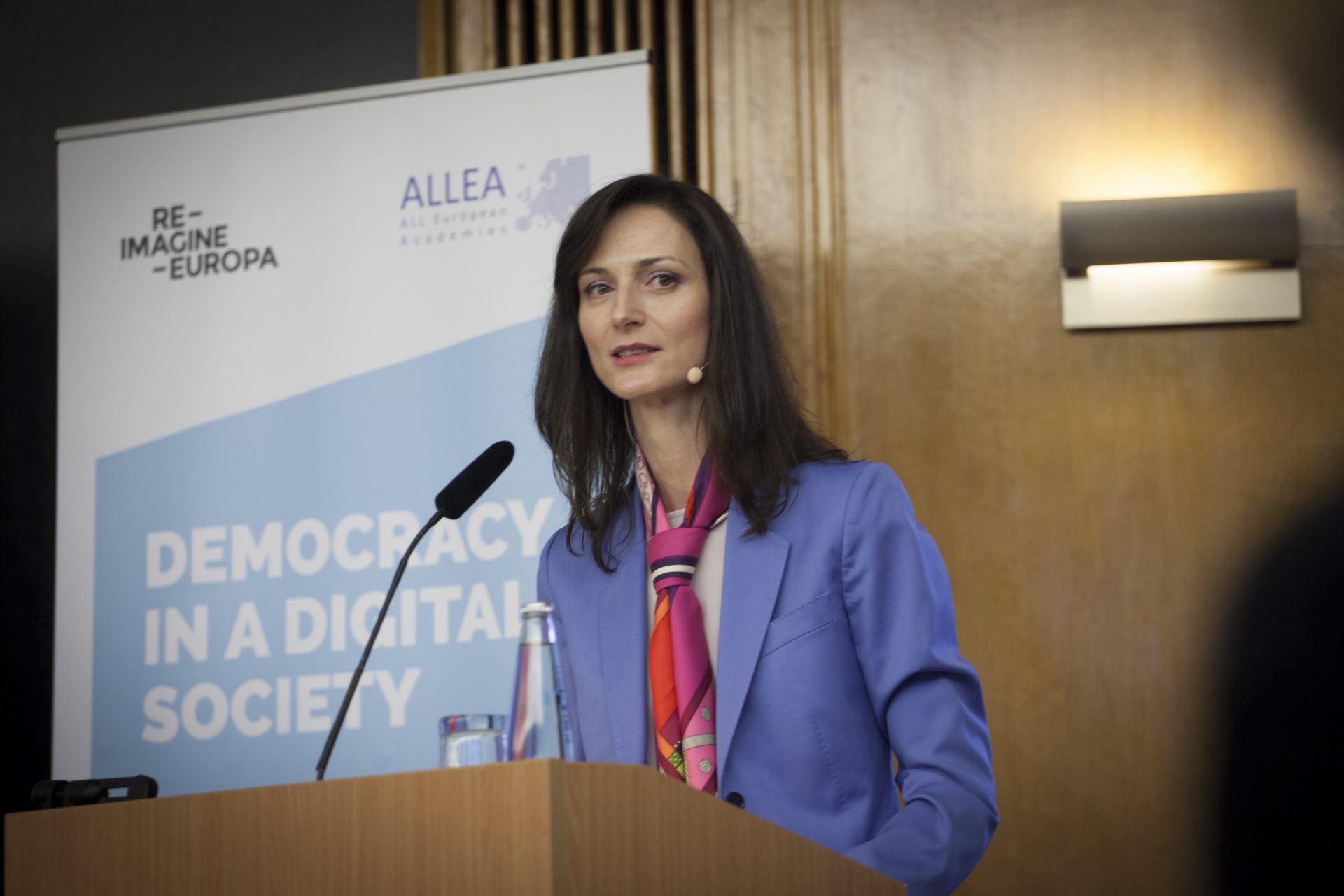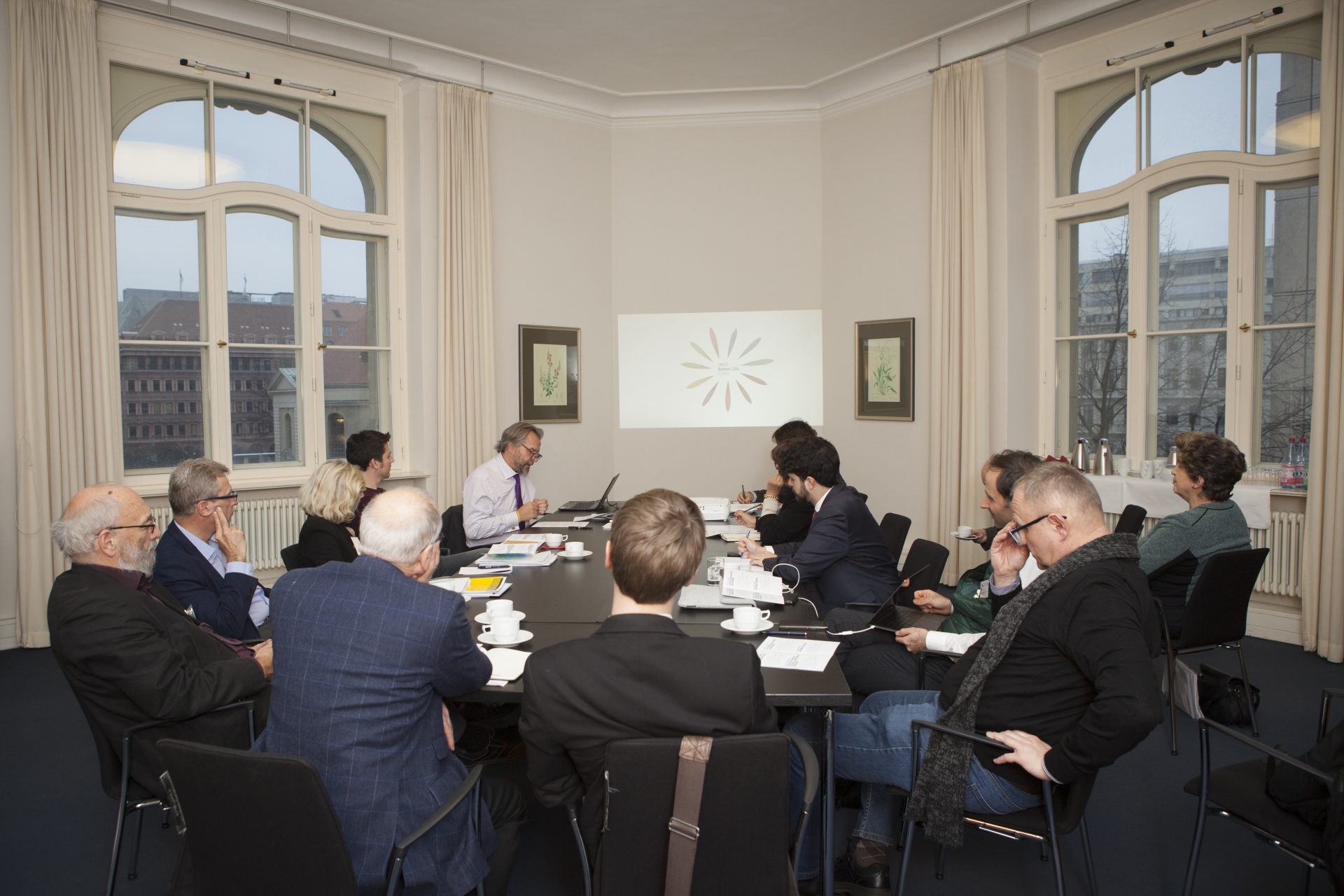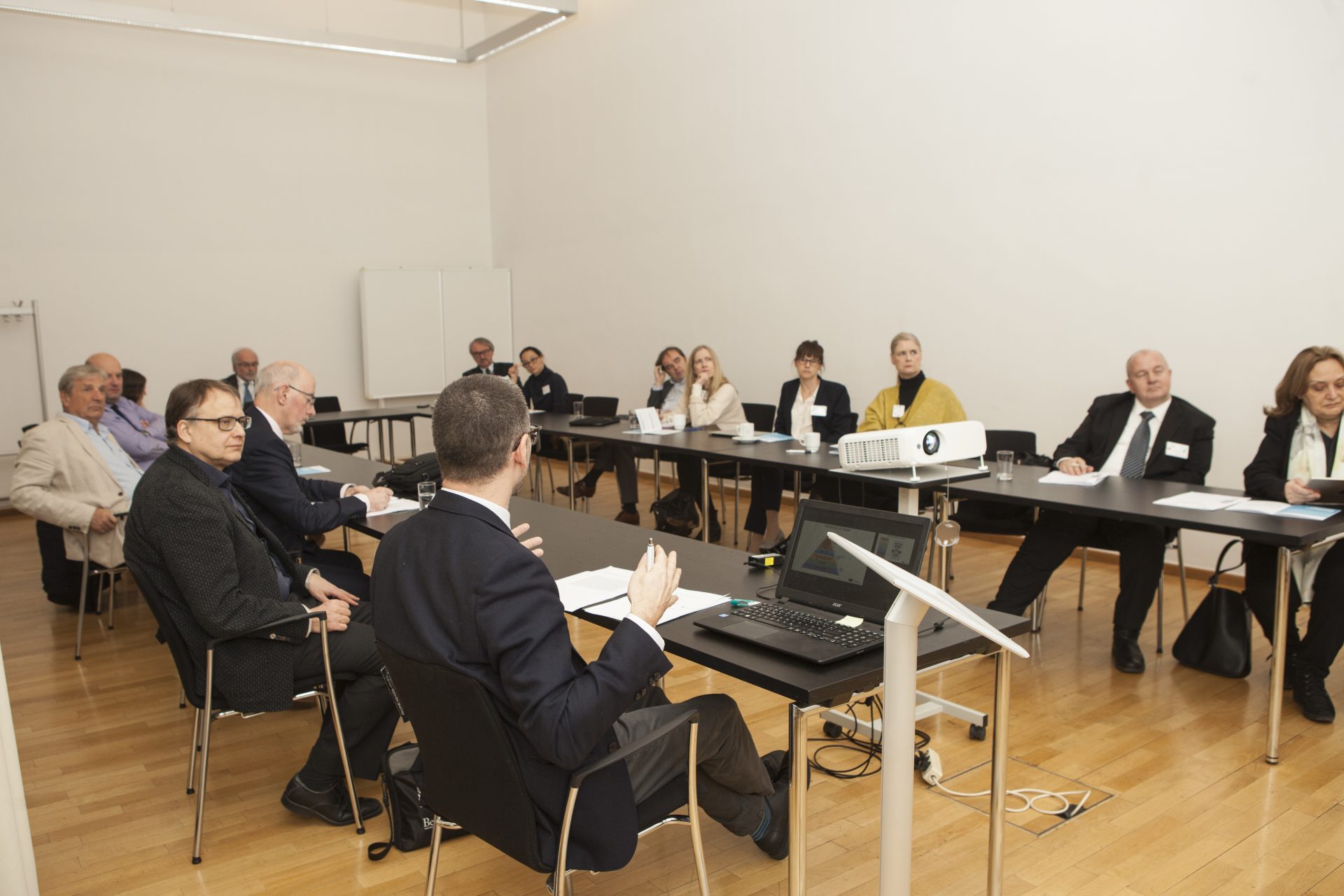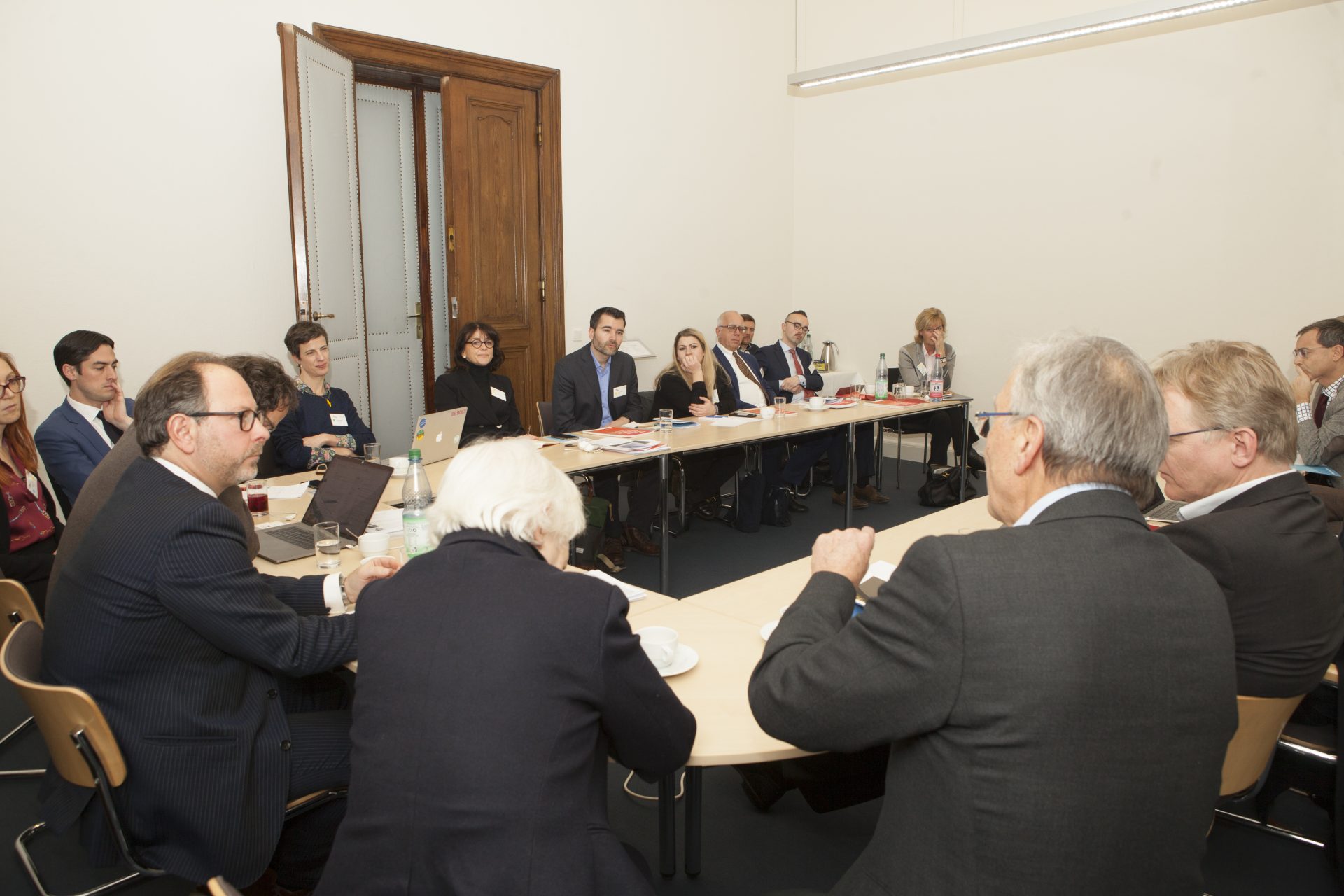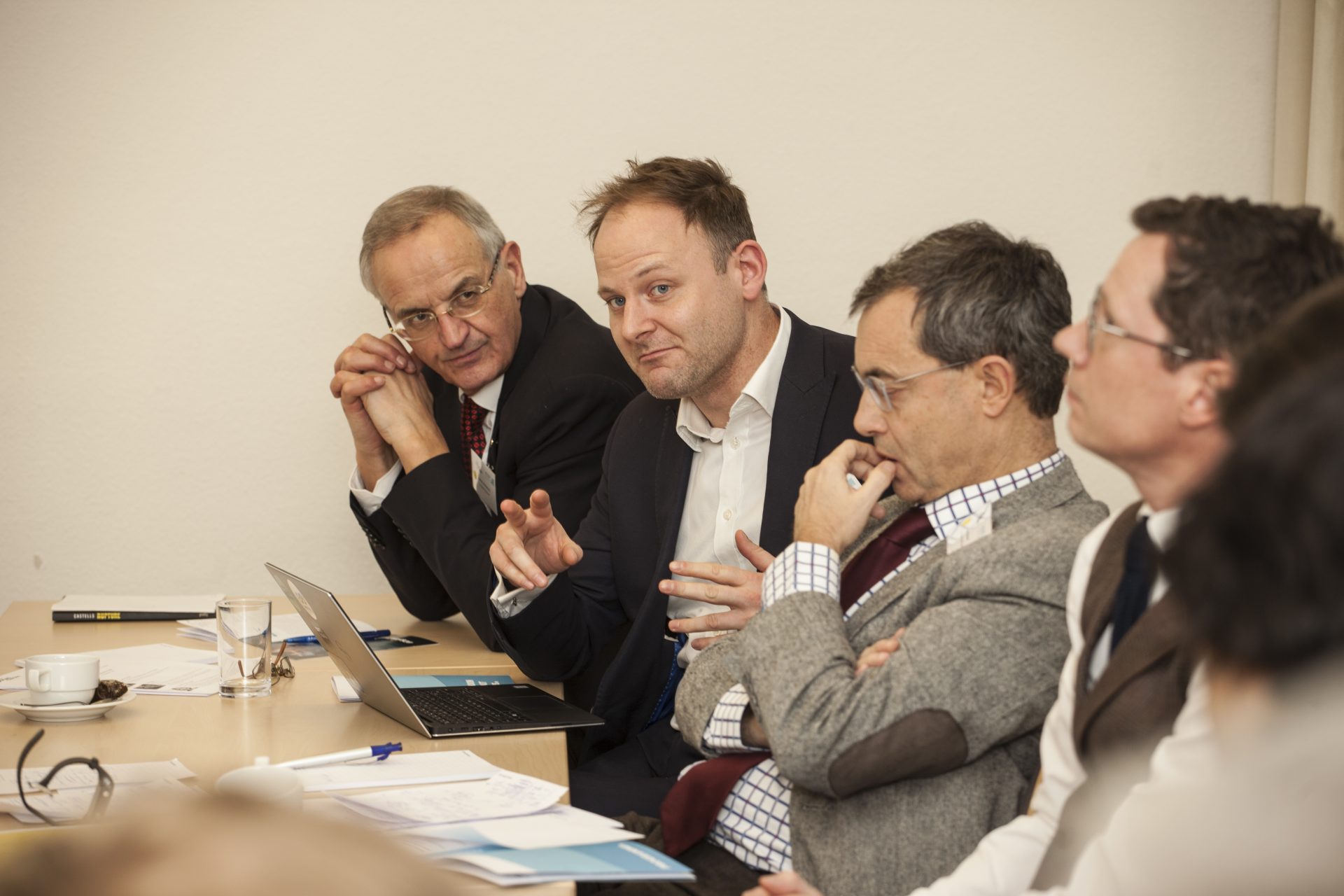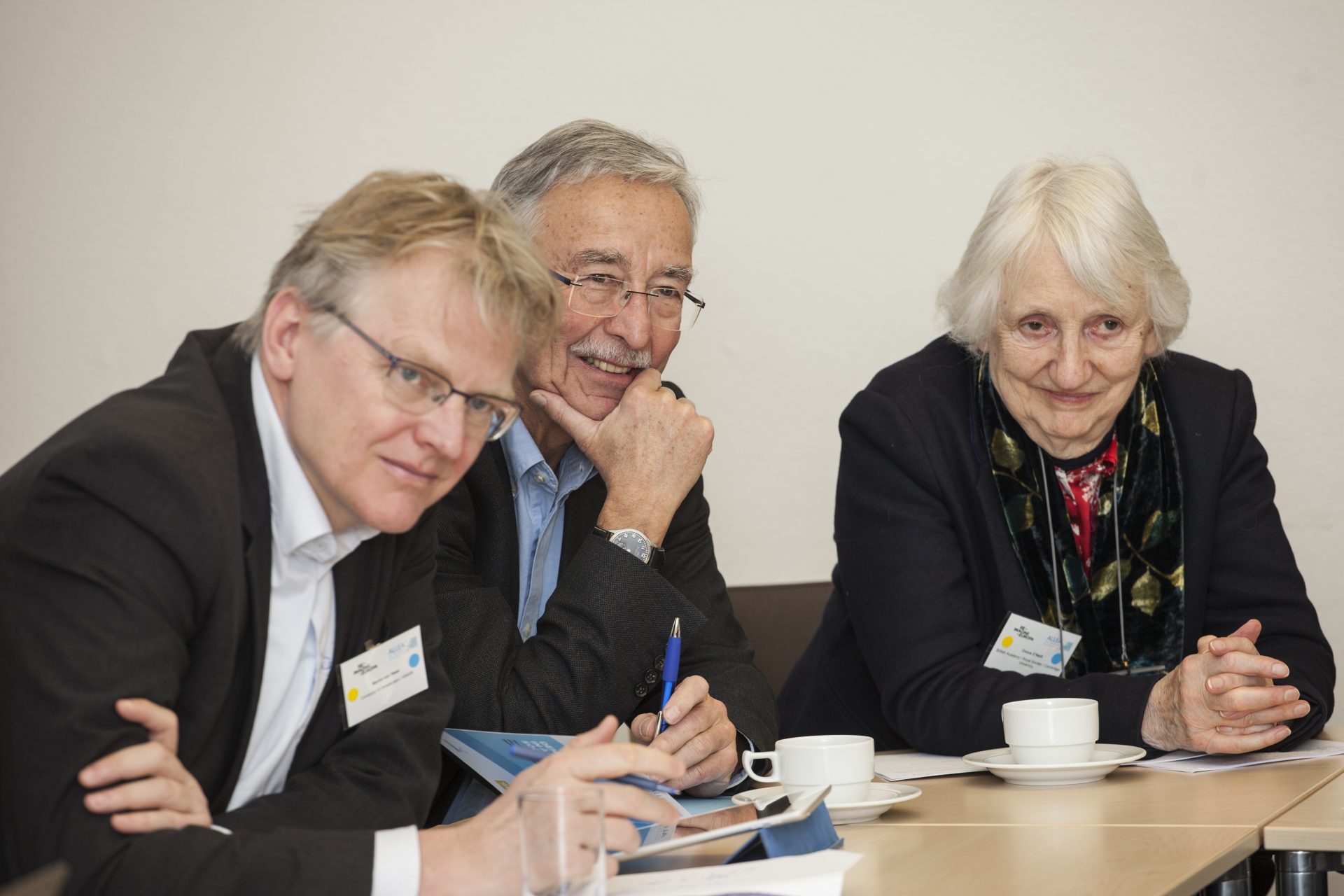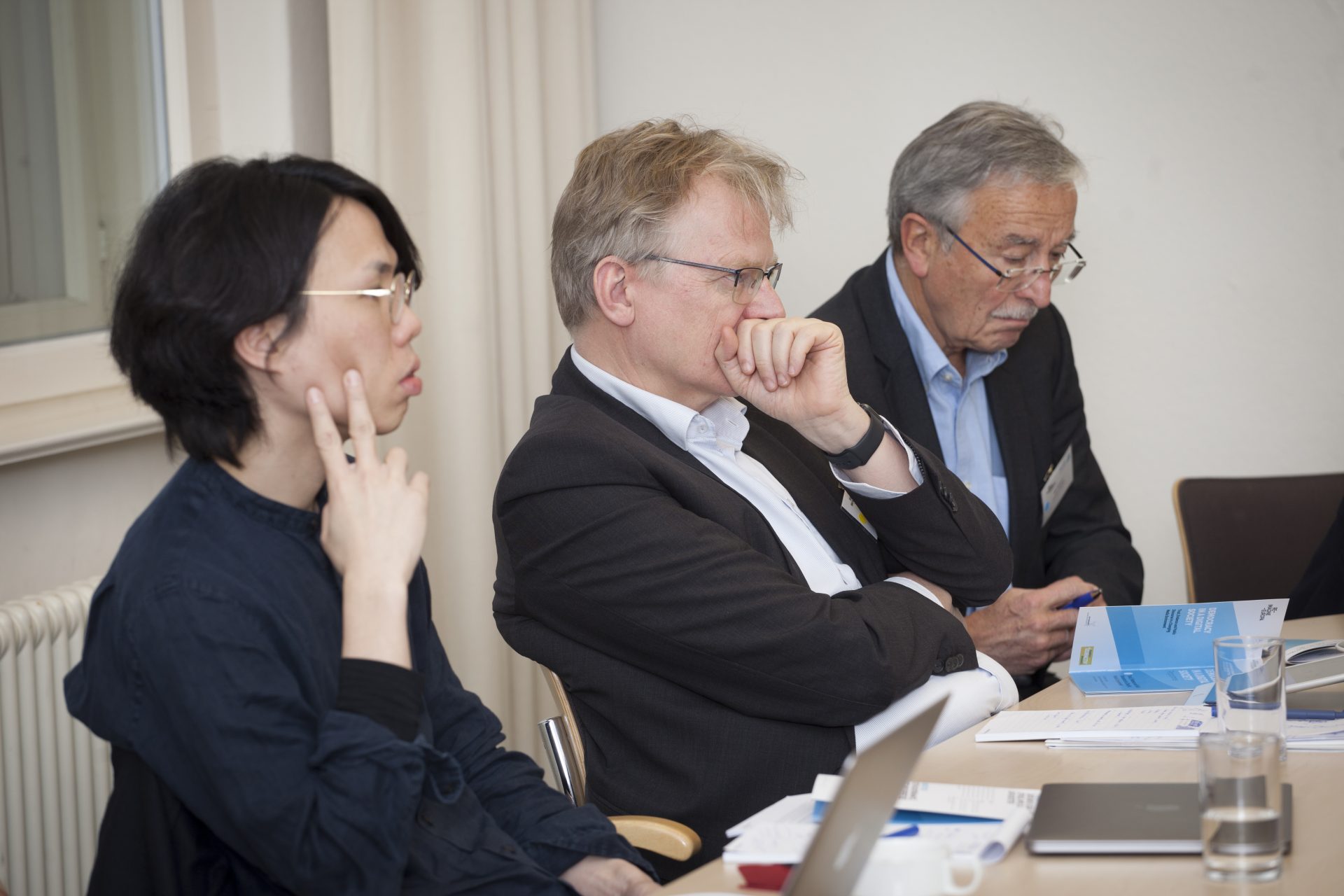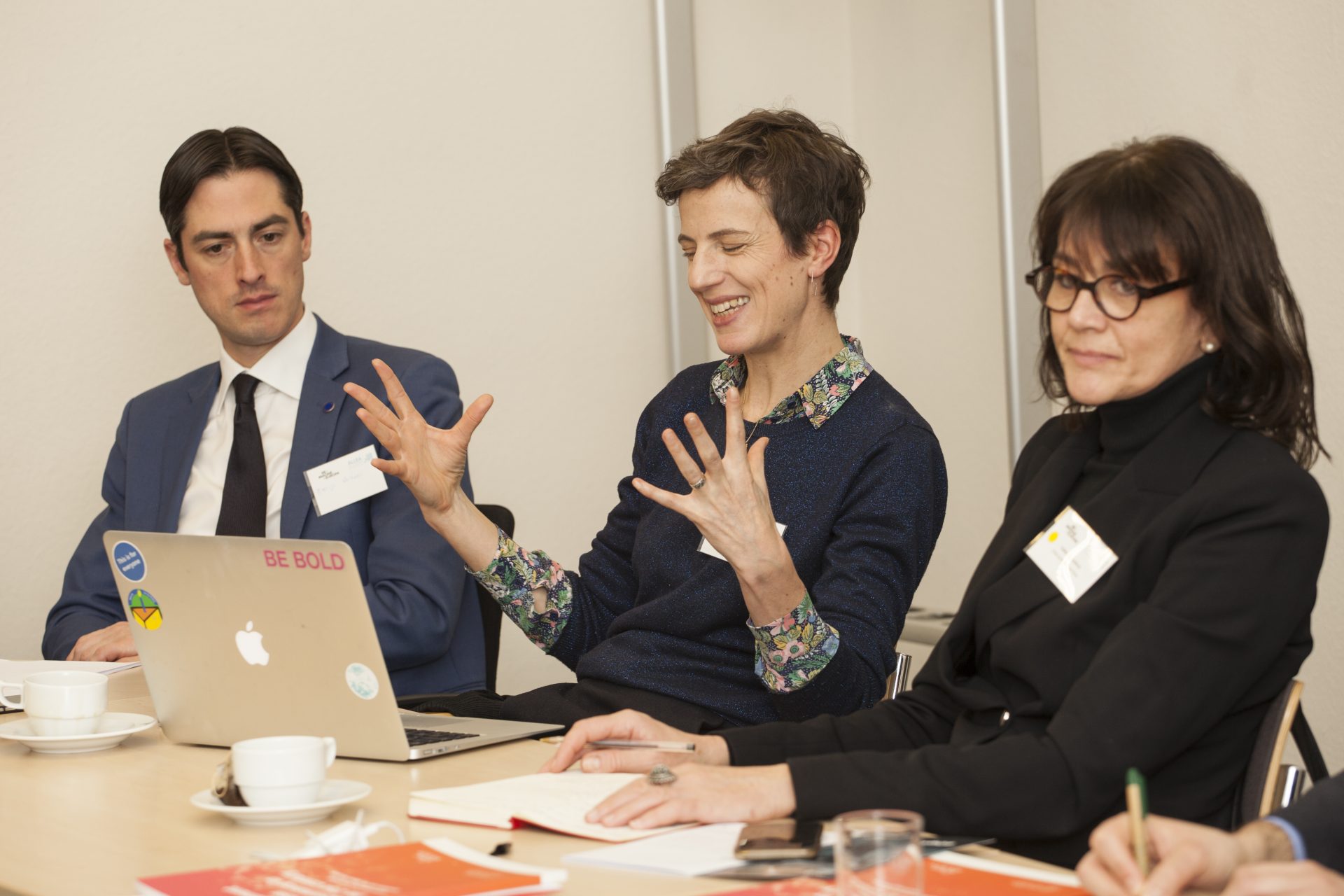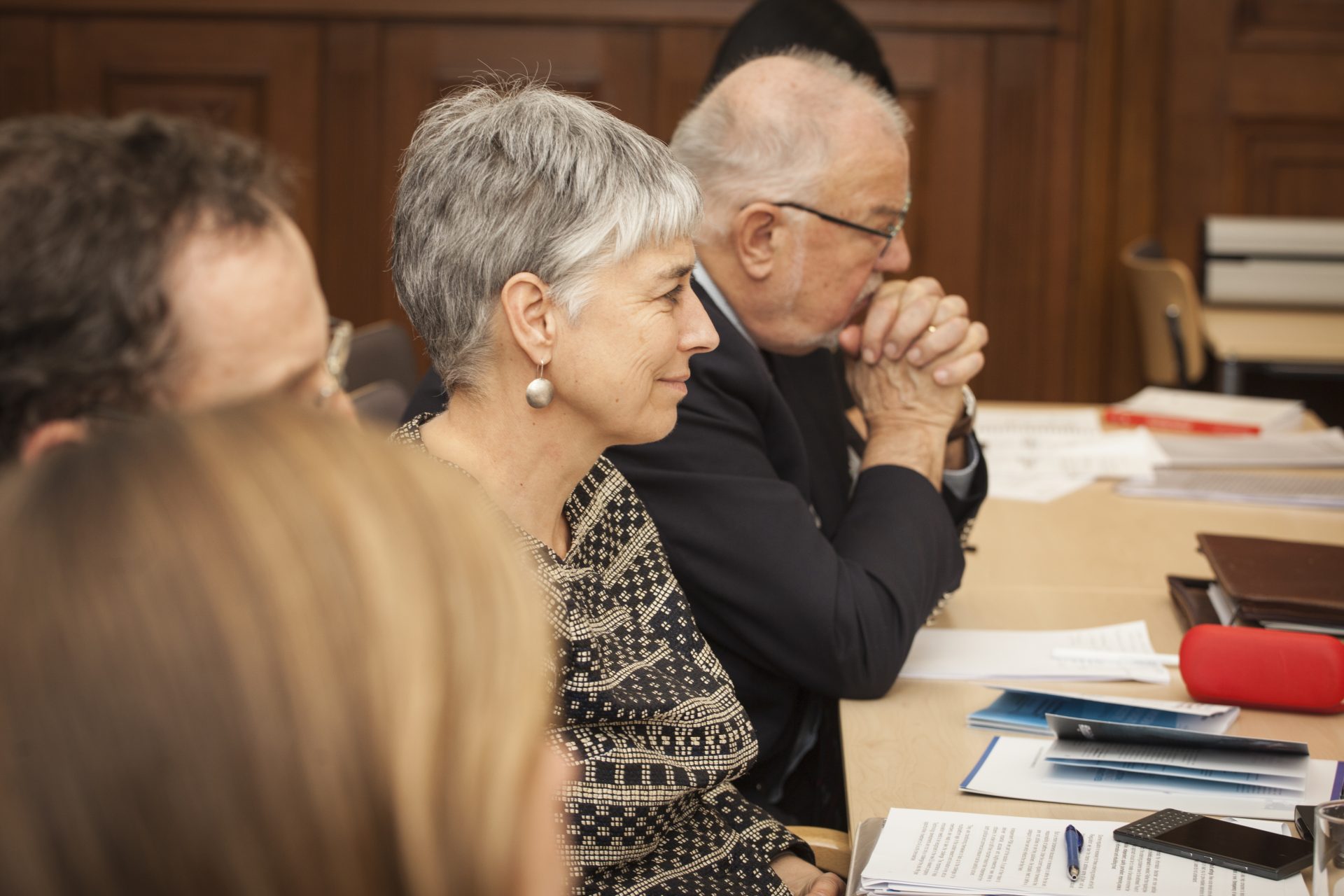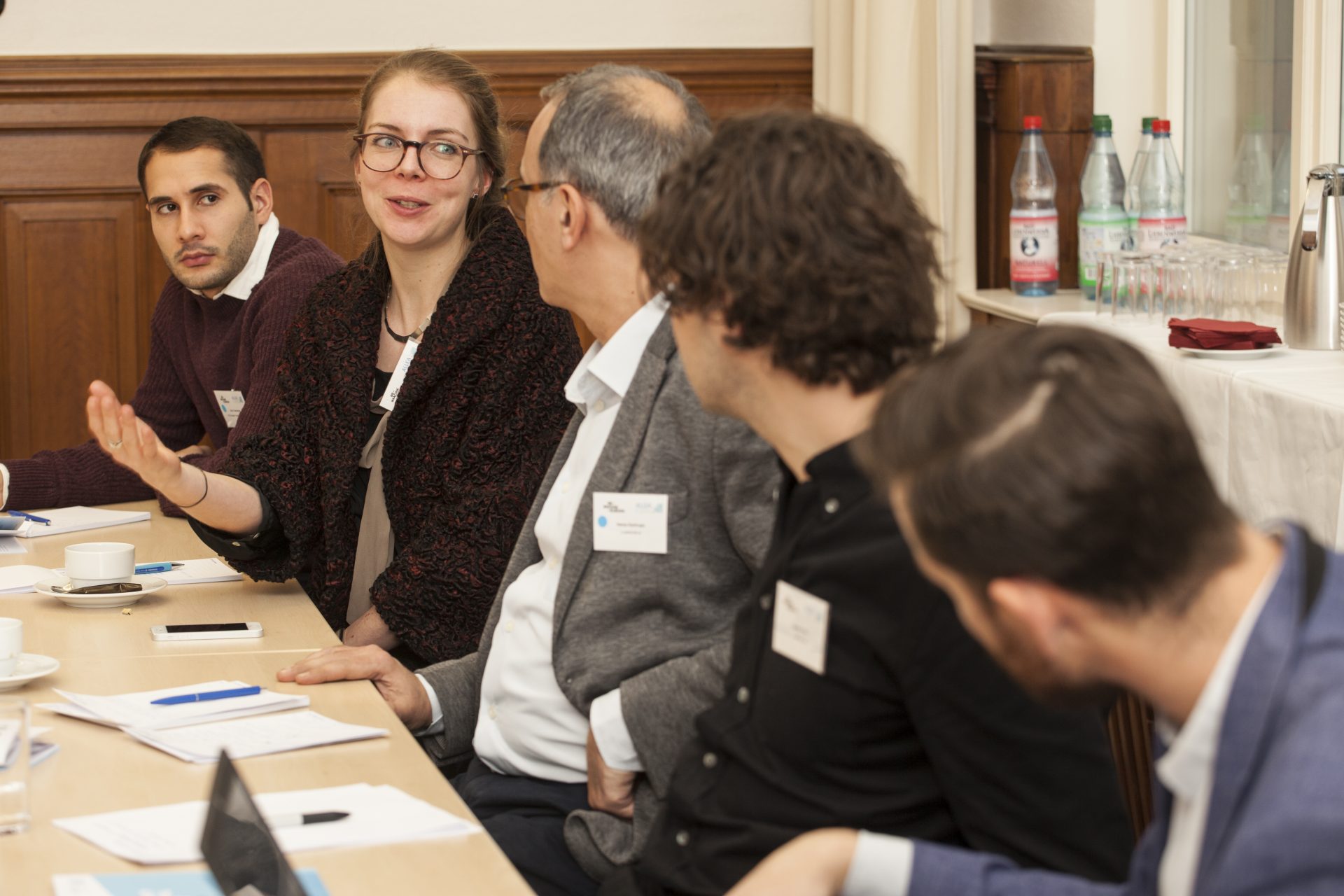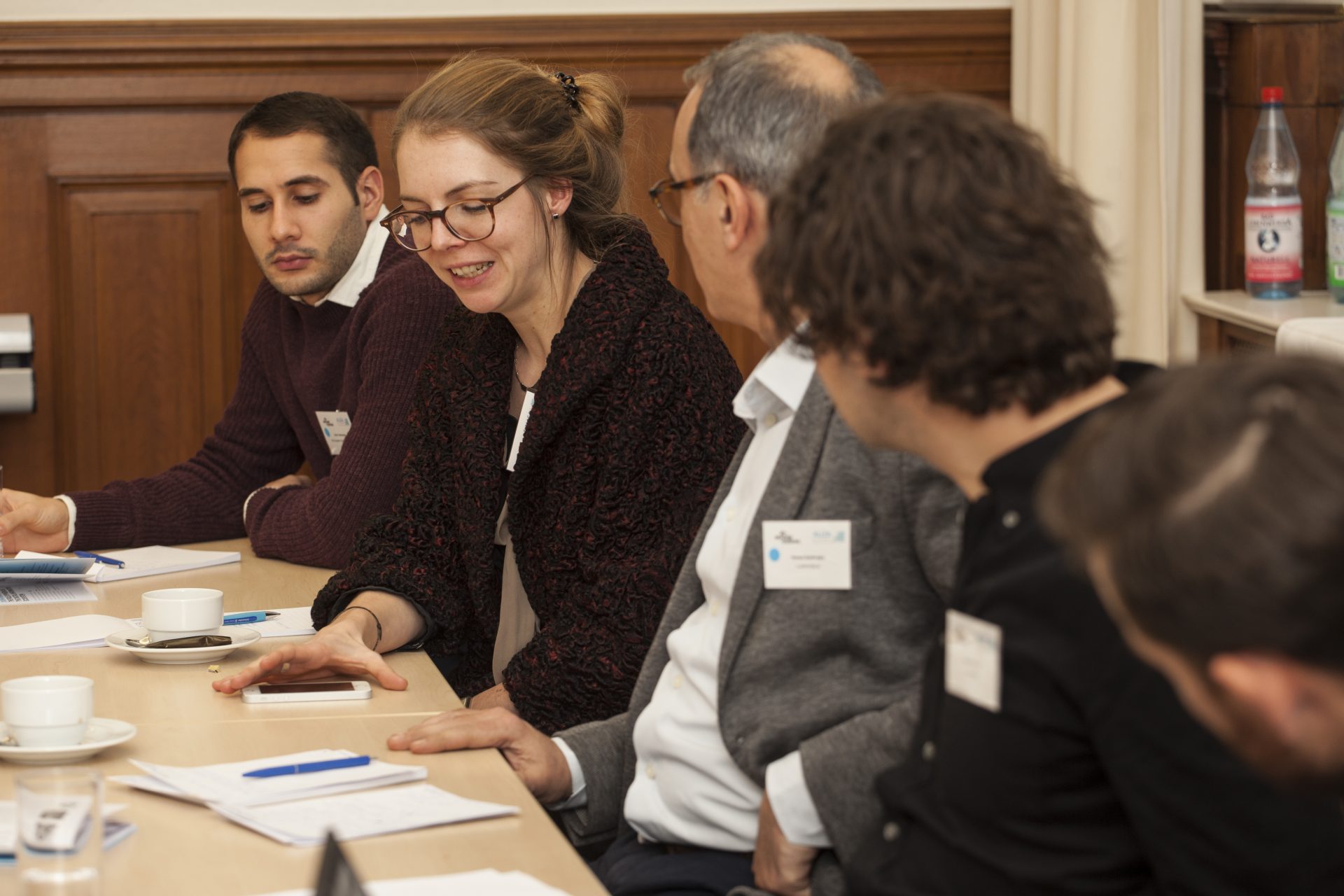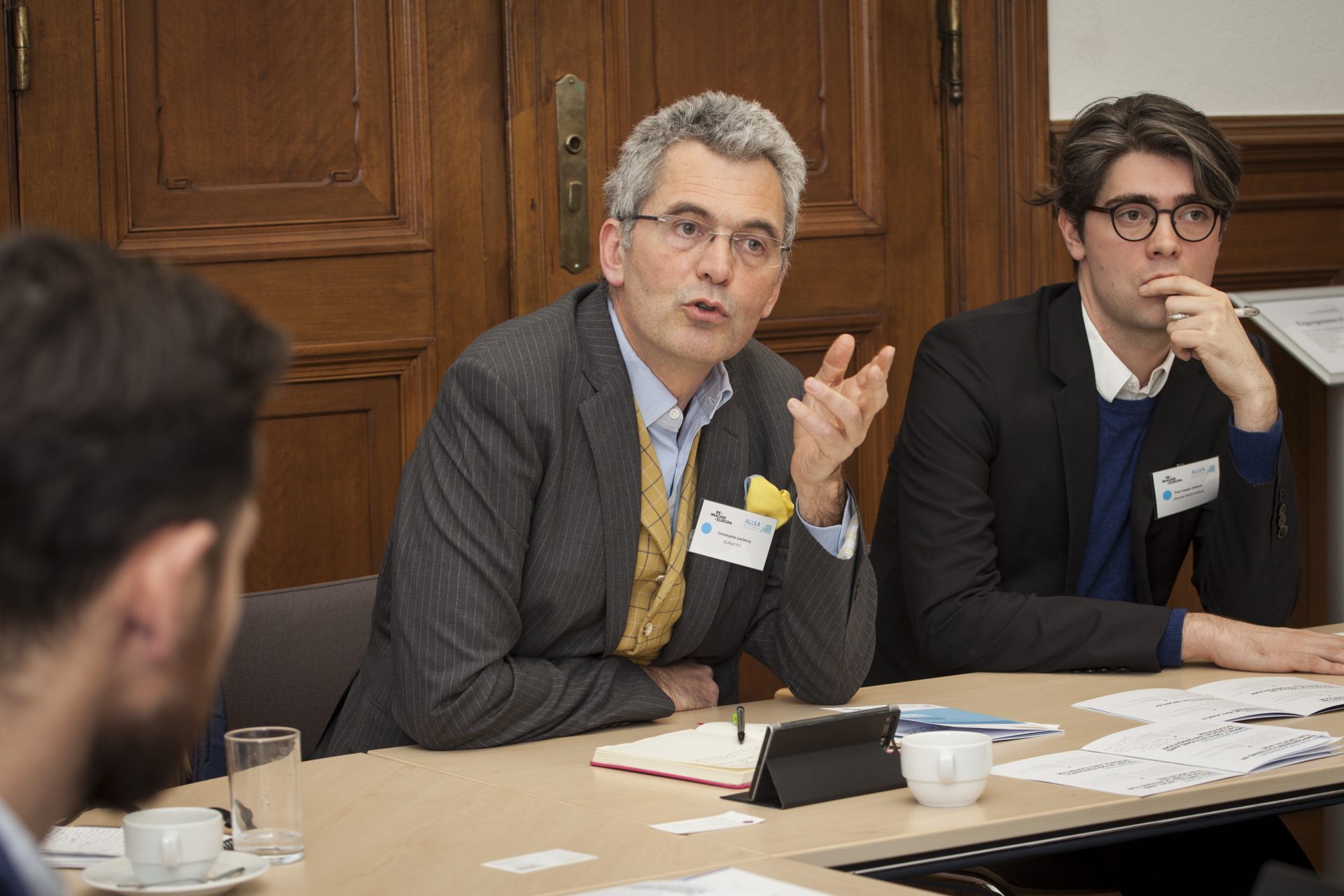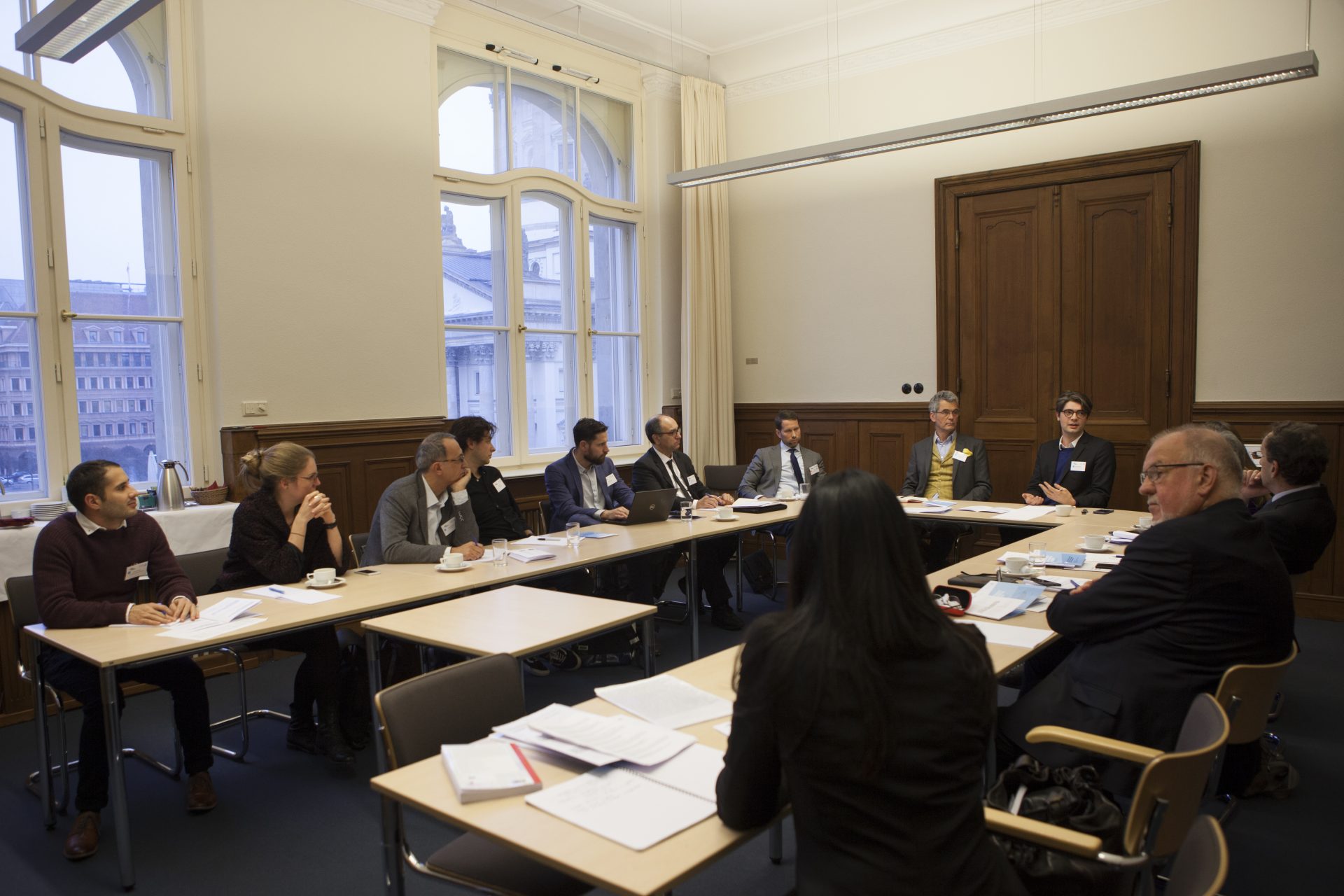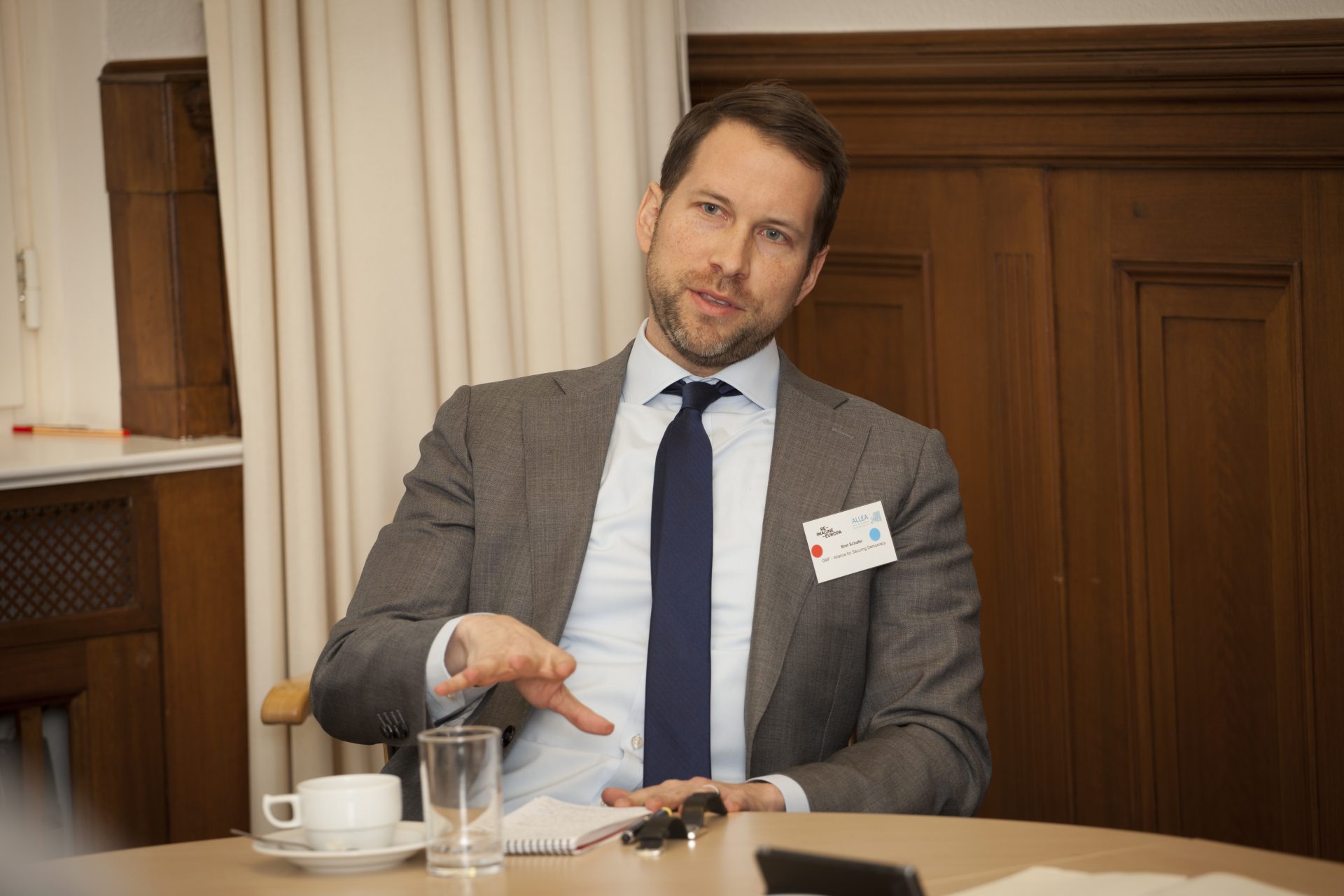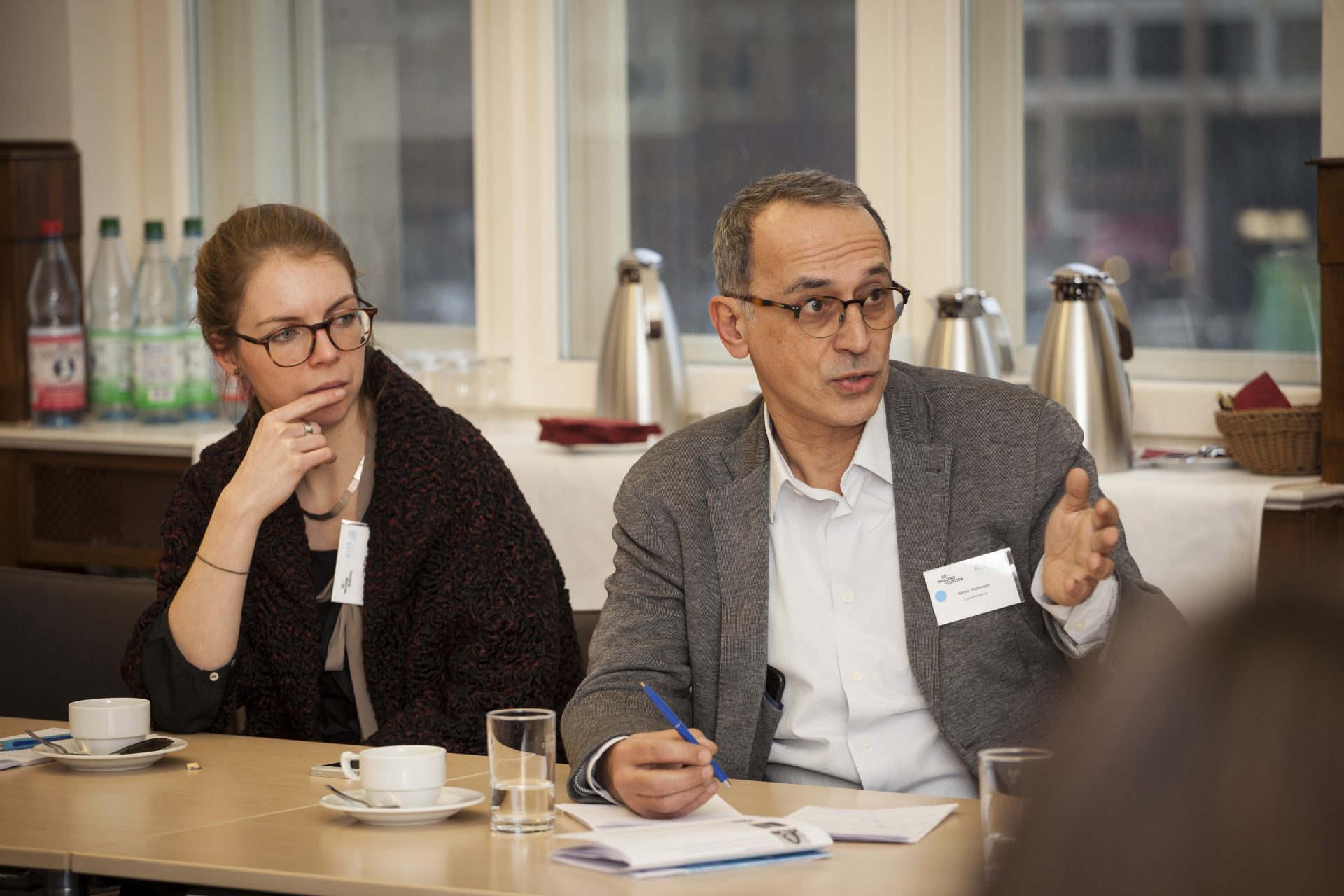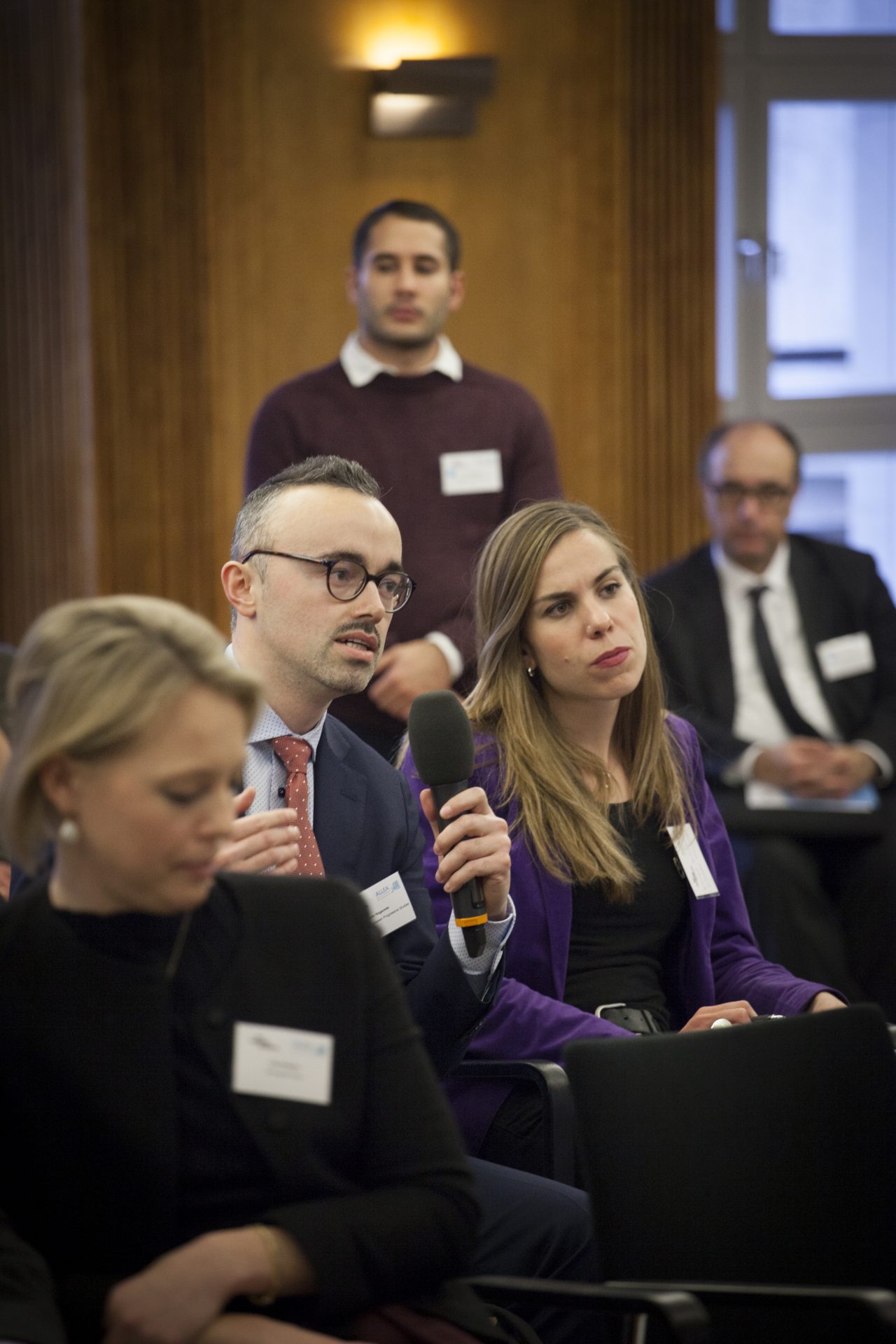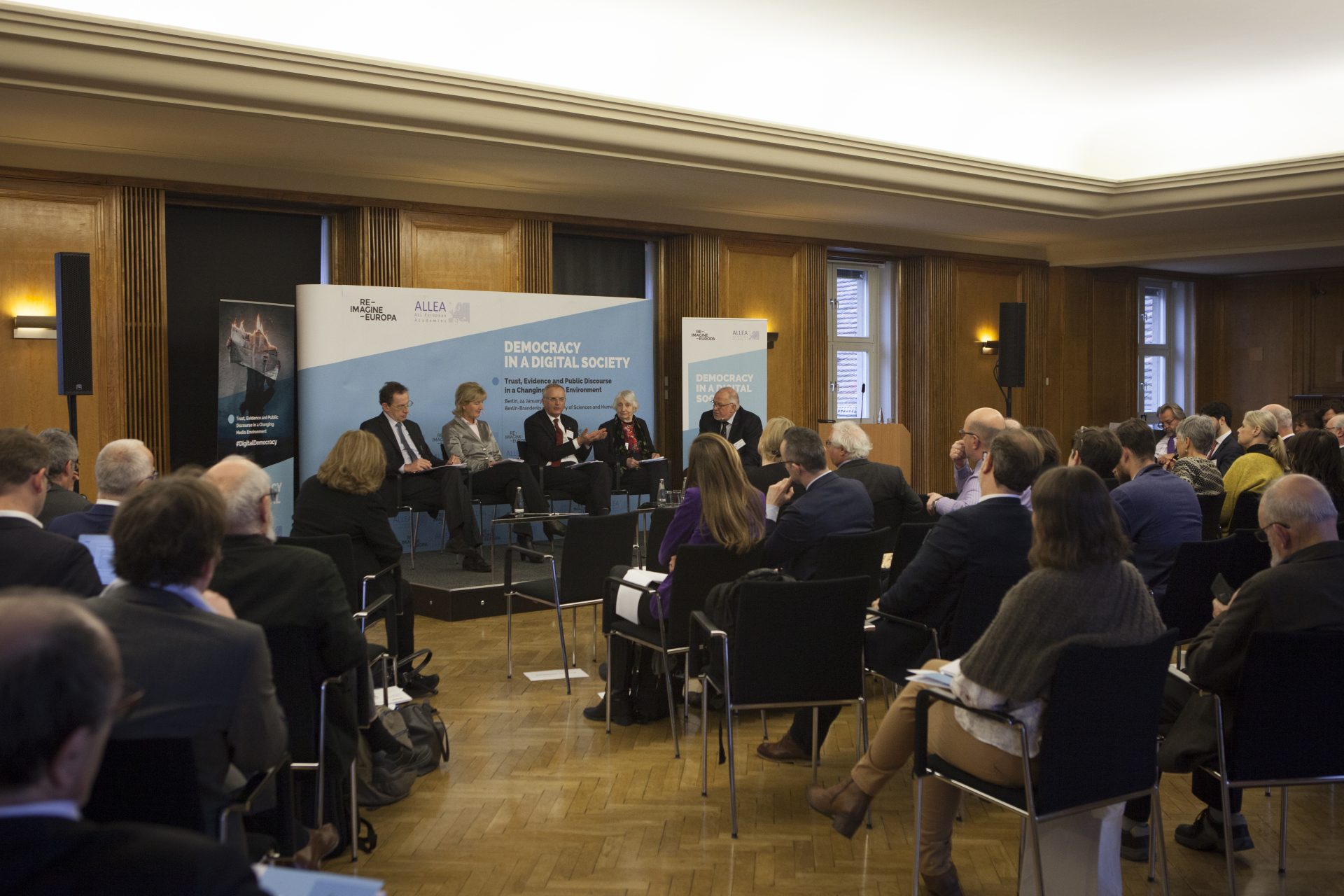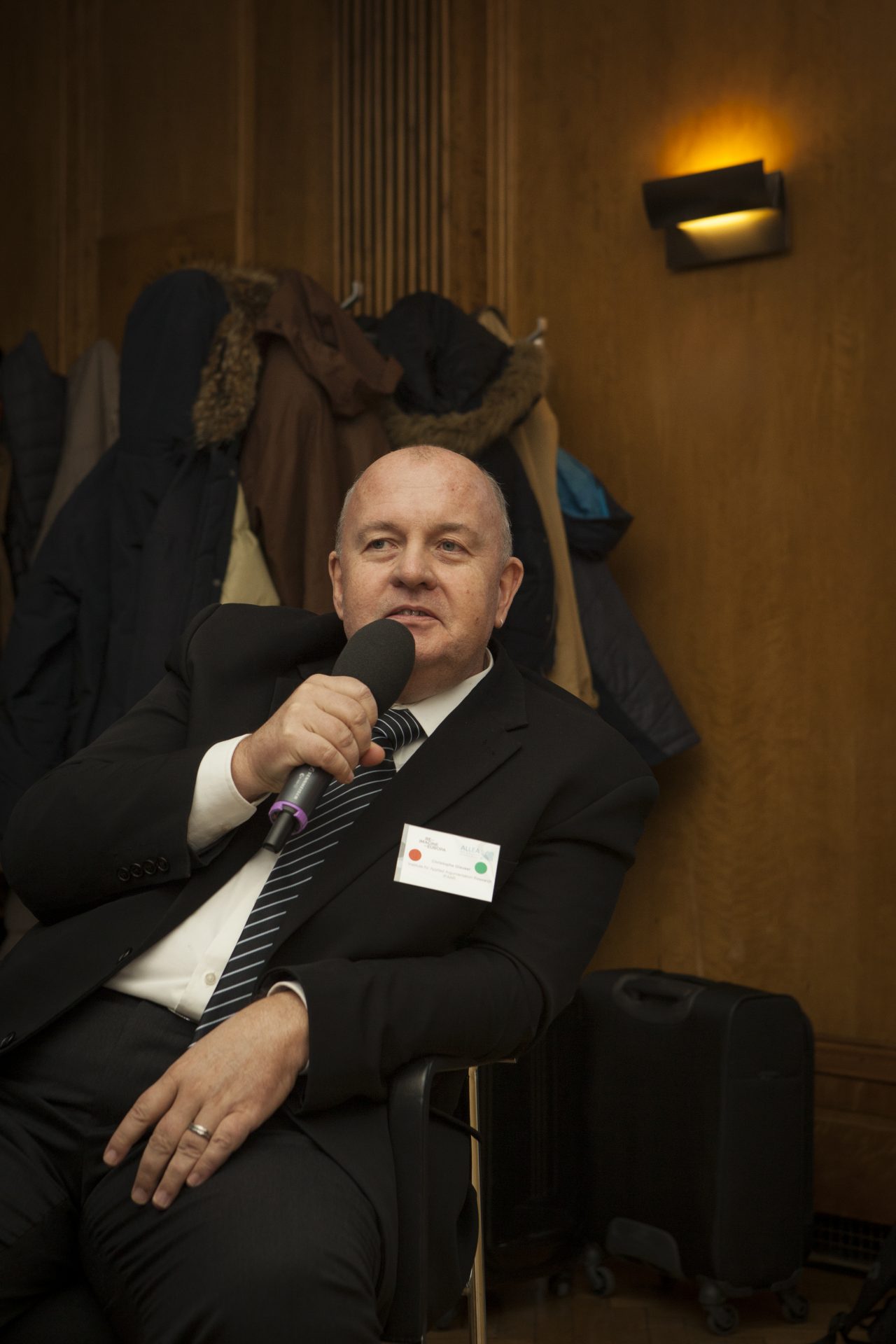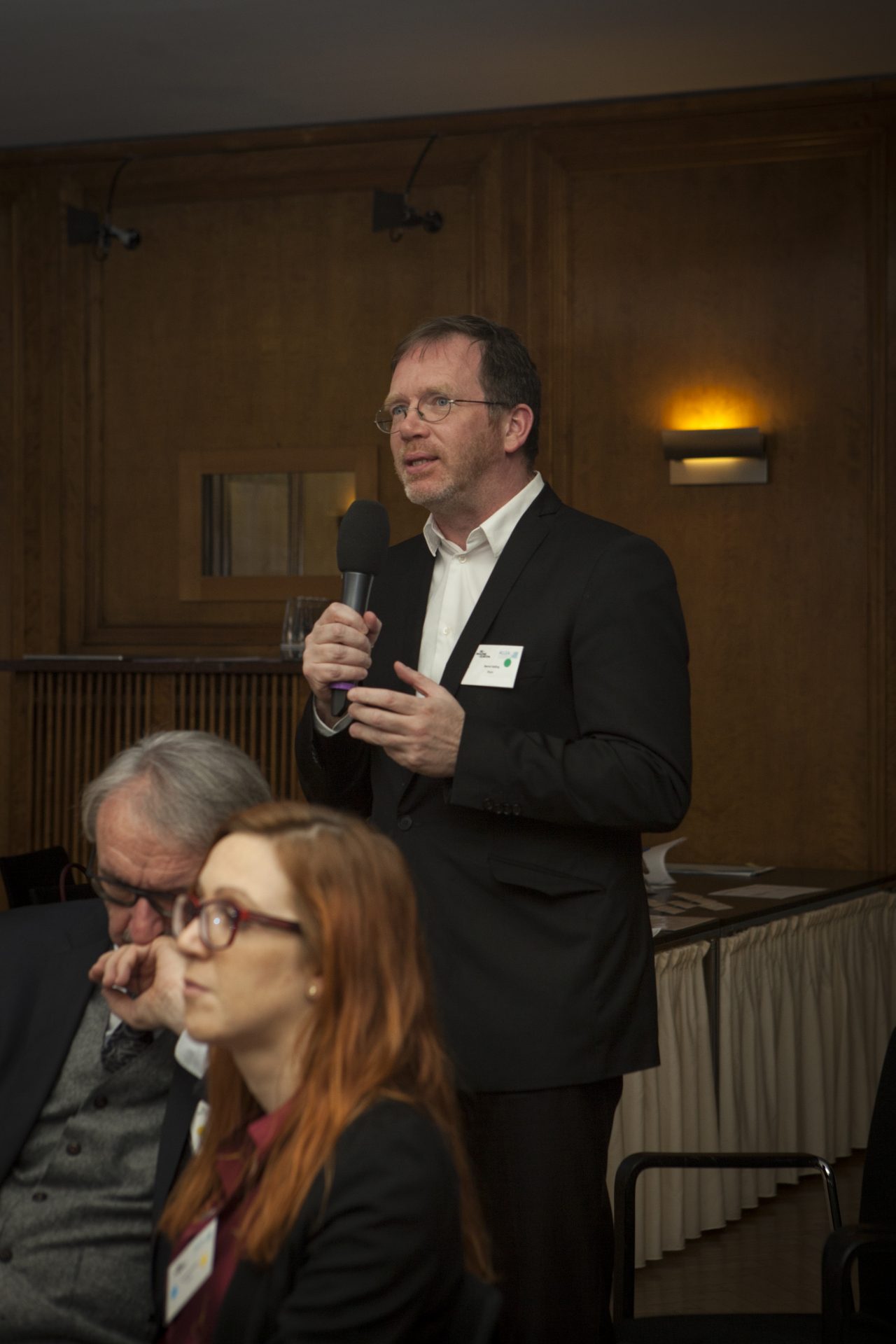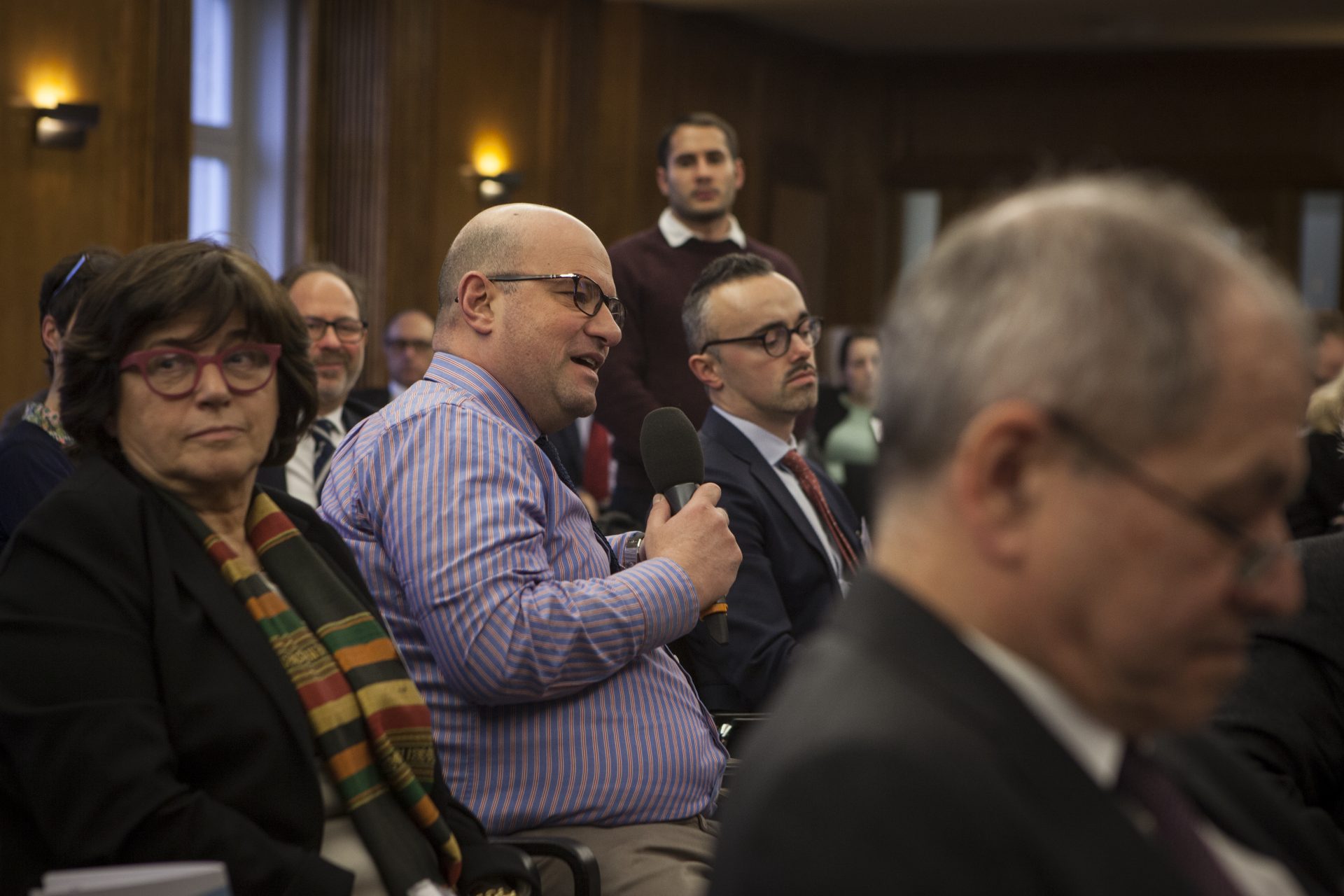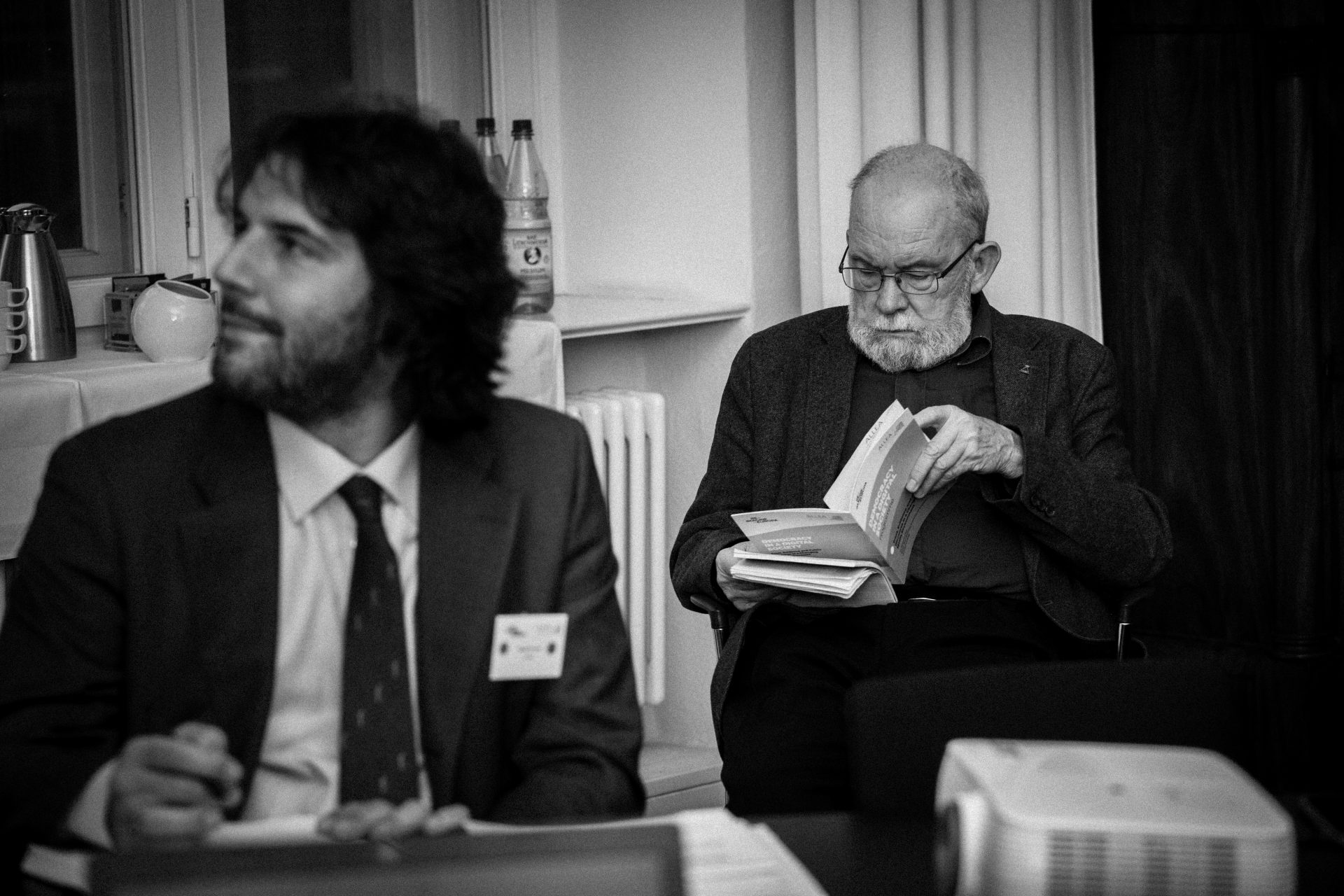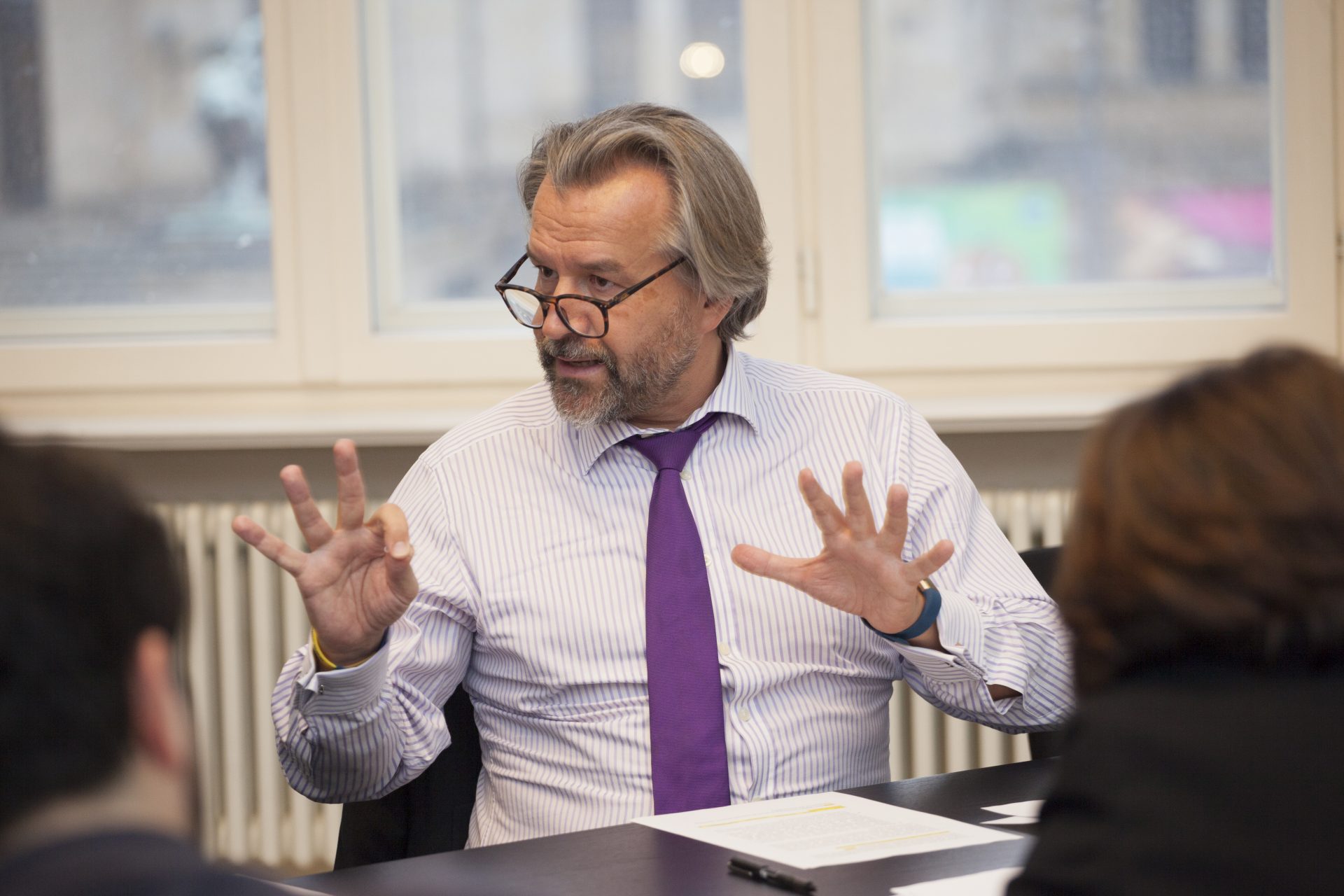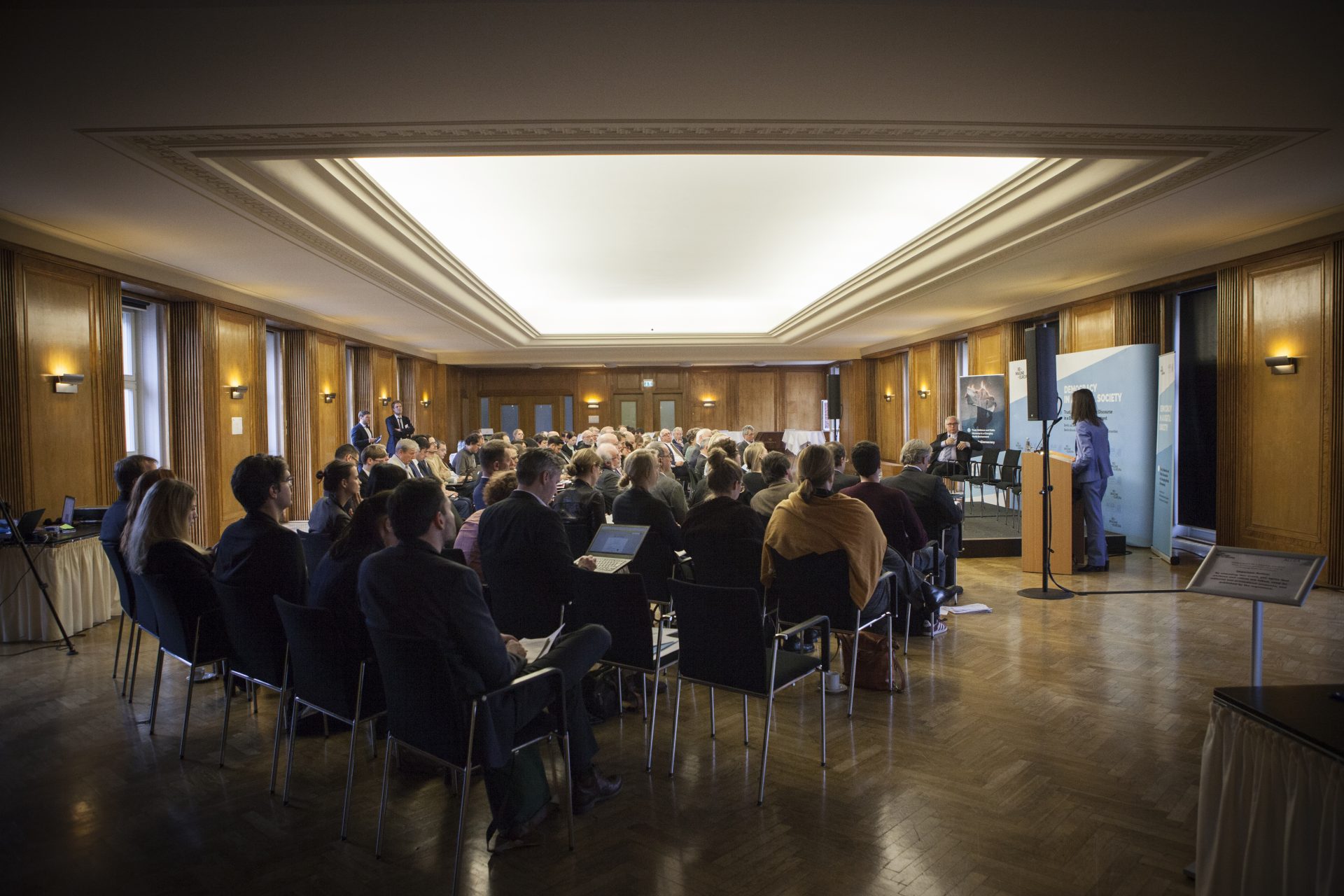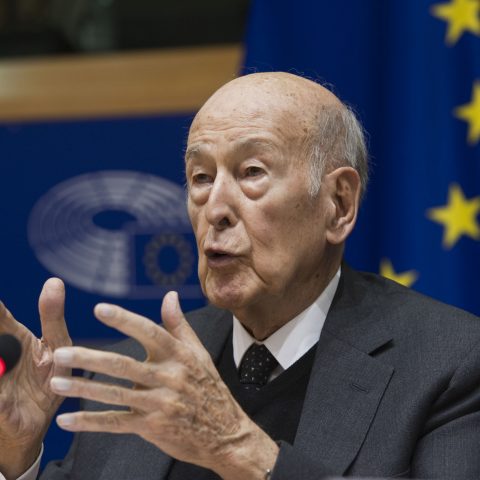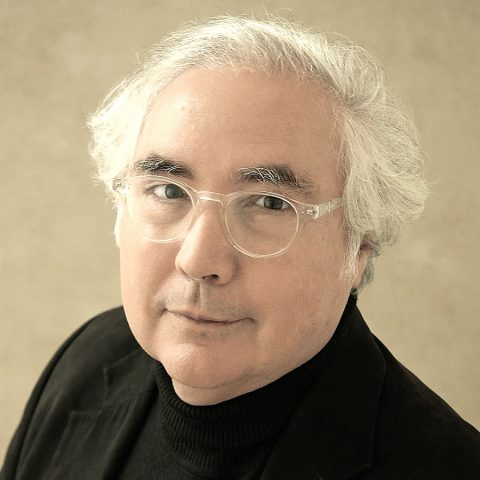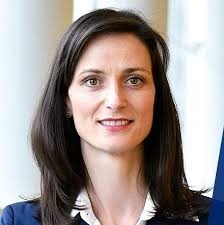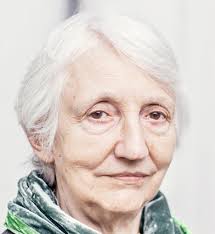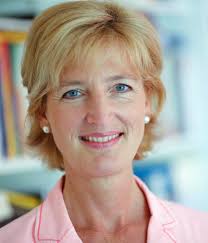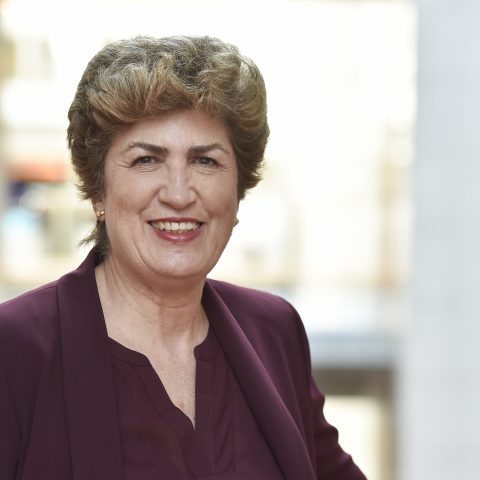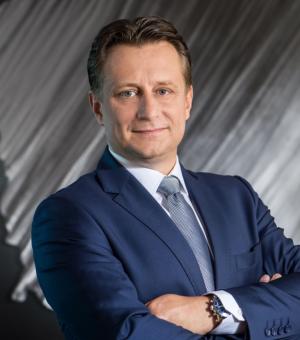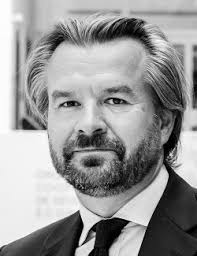| Start date: | 24/01/2019 |
|---|---|
| End date: | 24/01/2019 |
| Where: | Berlin Brandenburg Academy of Sciences, Berlin |
This full-day conference aimed to address some of the most pressing questions around the impact of digital transformations on democratic institutions in Europe and beyond. Considering recent events and the urgency to understand this complex relationship, renowned speakers from policy, academia, journalism and civil society came to Berlin to reflect on different aspects of political legitimation, societal trust, scientific evidence and public discourse in a rapidly changing media environment under the scientific leadership of Professor Manuel Castells.
The communication ecosystem is central to a well-functioning society. Its influence in shaping minds – and thus reality – has been emphasised by its enormous impact on recent political events, underlining the fact that the control and ownership of the internet is one of the most important battles of our time.
Hosted by the Berlin Brandenburg Academy of Sciences and Humanities, the forum brought together leading experts from academia, politics, industry, civil society organisations and media to come up with proposals of how a European model for a digital society could look like and which values should guide this process.
The discussions built on the work developed by the ALLEA Working Group Truth, Trust and Expertise and acted as the starting point for Re-Imagine Europa’s task force on “Democracy in a Digital Society”. Questions addressed included: How can we maintain a healthy media ecosystem in a digital world? How does disinformation spread on social media? What is the role of narratives in creating shared world views? What is the value of societal trust in scientific evidence? How can we deal with big data in an ethical way?
The outcomes of the discussion will form the backbone of the “Roadmap for a New Model of the Digital Information Ecosystem” that can promote concrete actions on what should be done at a European level in the coming 5 years.
Here you can find the full conference report.
